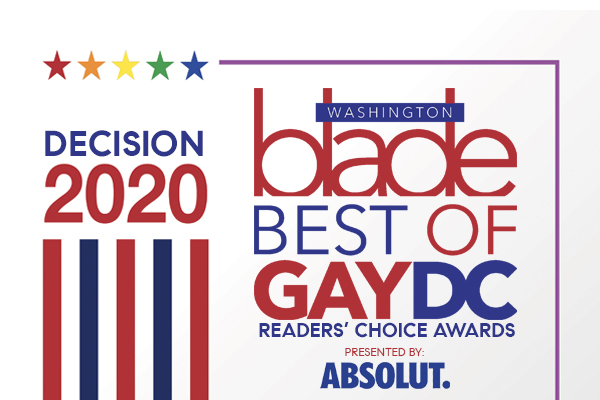a&e features
Best of Gay D.C. 2020
Celebrating our resilience in a year like no other
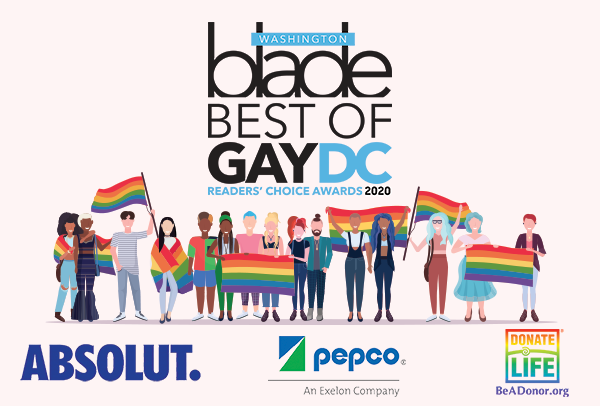
The 19th annual Washington Blade Best Of awards arrive amid the ongoing coronavirus pandemic that has shuttered so many of our perennial winners in this competition. Theater productions, cinemas, popular fundraising events remain shuttered; bars and restaurants operate at reduced capacity and struggle to remain afloat. COVID has upended our world in unprecedented ways. Just a year ago, the Blade was preparing to celebrate its 50th anniversary with a gala party. Now such events are just a distant memory in the age of social distancing.
But amid the loss and heartbreak, there emerge stories of hope, heroism, and resilience. First responders, doctors, nurses and even grocery store clerks have stepped up and become heroes in 2020. Business owners got creative, moving to virtual operations, creating new products (face masks, hand sanitizer), and taking their business outside (restaurants, bars). Drag queens performed on Zoom and fitness instructors did the same. We adapted. The LGBTQ community has been through a pandemic before.
So here we celebrate the best of our LGBTQ community in Washington. We reduced our usual 100 categories to 40 given all the COVID closures and restrictions on nightlife and arts & entertainment events. About 4,000 nominations and 25,000 votes were cast in 40 categories for the 19th annual Best of awards. The Blade’s Stephen Rutgers coordinated the process. The photographers are credited throughout. This year’s contributing writers are Philip Van Slooten, Joey DiGuglielmo, and Kevin Naff. There will be no Best Of party this year, of course, but we will celebrate all the winners and nominees virtually in an online presentation at our website. We look forward to a raucous in-person celebration in 2021.
LOCAL HERO: RYAN MADDOCK
RUNNER UP: RUBY CORADO
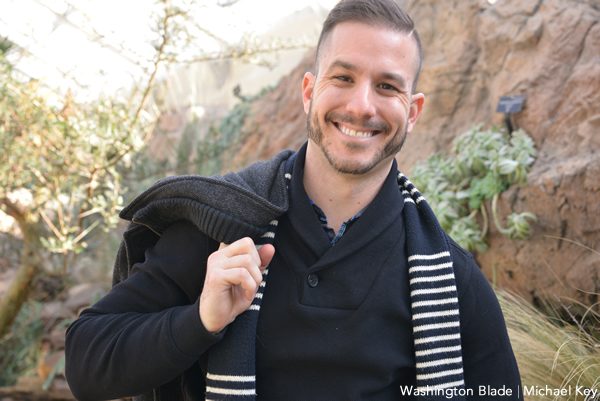
In his first clinical role at Children’s National Hospital, Ryan Maddock worked with kids with chronic kidney disease. In his current role in the Pediatric Intensive Care Unit, he’s discussed organ donation with parents whose children are at death’s door.
So when Maddock saw his friend Paul Johnson, whom he met in 2011 through Stonewall Kickball, struggling with kidney disease, he wanted to help.
Johnson, whom Maddock says often looked “awful and sick,” initially didn’t think Maddock was serious, but Maddock persisted.
He says giving the “gift of life” was not a hard decision.
“I understood the process,” Maddock, a 39-year-old gay Eckington resident, says. “I believe in it with all my being and heart.”
Johnson doesn’t have Maddock’s kidney but his willingness to donate enabled Johnson to find a donor whom doctors thought would be a better match. A positive cross match between Maddock and Johnson meant Johnson’s body was more likely to reject Maddock’s kidney, so a pairing program was entered at Medstar Georgetown and transplant coordinators worked to find the best donor/recipient for each pair. Maddock doesn’t know who ended up with his kidney but he hopes to someday.
Without Maddock’s willingness do donate, it could have been years before Johnson would have been able to find a match, Maddock says.
“At first he thought I was crazy and not serious. After we were both through the evaluation process we understood each other and have a trust and love for each other,” Maddock says. “He tells me all the time how thankful he is, but I am truly grateful to be able to give him this life off of dialysis.”
The surgeries happened July 14 at Medstar Georgetown. Maddock has five laparoscopic scars and one longer scar (two-and-a-half inches) on his abdomen. He says it was not traumatic and he has no after effects. His only limitation because of the donation is he cannot take certain types of anti-inflammatory drugs like Ibuprofin.
Although they don’t hang out as before because of the pandemic, Maddock says he and Johnson talk regularly and are both doing well. Maddock is back to work.
“I don’t have anyone else in my family with kidney disease and I knew that Paul’s life on dialysis was awful and he deserved a second chance at life off of dialysis,” Maddock says. JD
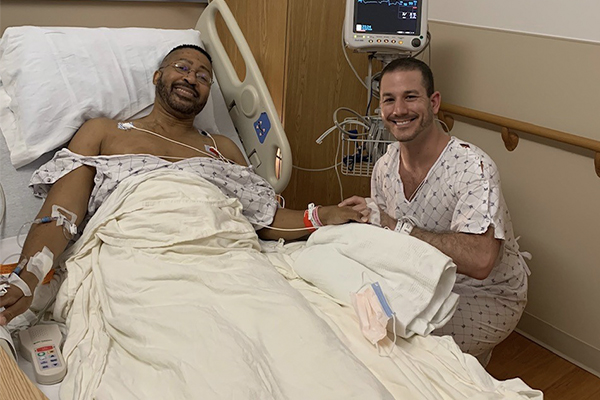
BEST DRAG QUEEN: DESIREE DIK
RUNNER UP: BOMBALICIOUS EKLAVER
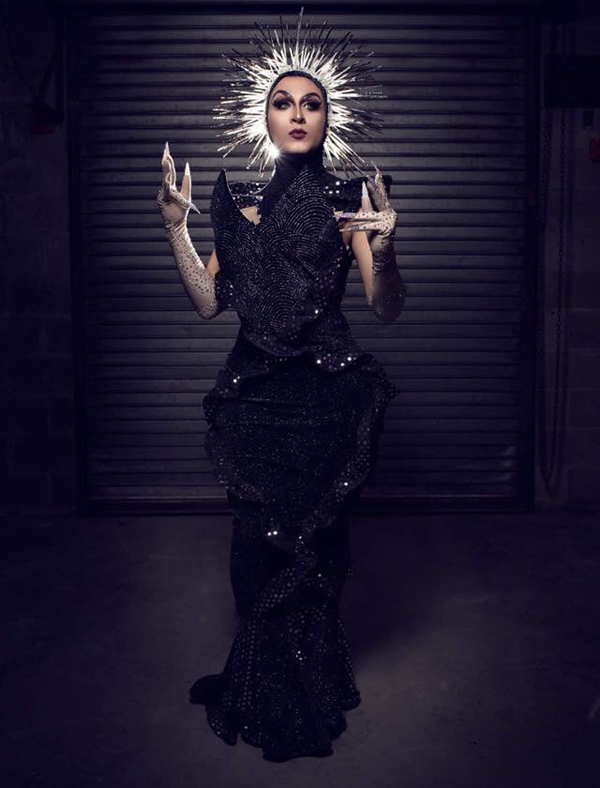
Desire Dik says when the pandemic first hit she was “freaking out like every other drag performer” about the loss of performance and income opportunity.
“But after I shook it off, Red Bear still wanted to do virtual drag bingo and Extravaganza so we kept doing those — safely, of course,” Dik says.
With her “day job” in teaching on hold, Dik was inspired by seeing drag performers around the country take their art online so she did the same. For now, Desiree Dik’s Oddbalel and Slash Run are virtual. She got in touch with Oddball vets and have kept it going.
For her tenacity, Dik has been named this year’s Best of Gay D.C. Best Drag Queen, a title previously held by legends such as Ba’Naka, Bombalicious Eklaver and Destiny B. Childs.
She’s working now on a Halloween show. Extravaganza is on hiatus for now but in its place is “Drag-livery” where drag queens pack takeout food for delivery. They go to homes and put on mini-drag shows while patrons eat their takeout.
George Marius was born in Falls Church, Va., but sent to Peru at 6 months old to be raised by his sister. He lived there until age 10, went back to live with parents in Falls Church and was kicked out at age 16 for being gay.
He got into drag on his 17th birthday at Freddie’s Beach Bar and said it just “made sense because I was a gay theater kid.” He tried it again a year later at a Town competition and was hooked.
“It’s been very crazy but at the end of the day, drag is what I love to do and see in others,” Dik says. “It just brings me joy.” JD
BEST DRAG KING: MAJIC DYKE
RUNNER UP: JACKSON B NITE
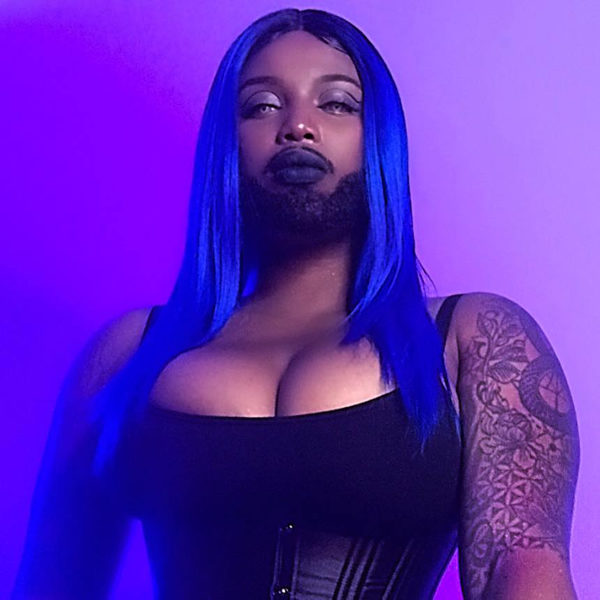
Majic Dyke, a Nairobi native who came to the U.S. with their family at age 10, says a lifetime of confusion about their gender identity clicked into focus in 2017 when they started performing as a drag king and got “fully integrated” with the LGBT scene in Washington.
“This is when things truly fell into place in my life,” Majic wrote in a blog post on uniteuk1.com. “I finally had the vocabulary that affirmed what I had always felt, and I finally had people around me that loved and accepted me in all my forms.”
Majic identifies as non-binary and pansexual and says all pronouns are OK.
Other monikers they favor are “genderqueer,” “drag king,” “go-go dancer,” “your friendly neighborhood gay boi” and “#beardsandtitties.”
In a Facebook post during the nomination process, Majic campaigned openly for the award and said they were “happy as fuck to be nominated alongside my sibs.”
Look for Majic on social media to find out more about performances. JD
BEST TRANSGENDER PERFORMER: INDIA LARELLE HOUSTON
RUNNER UP: DYLAN DICKHERSON
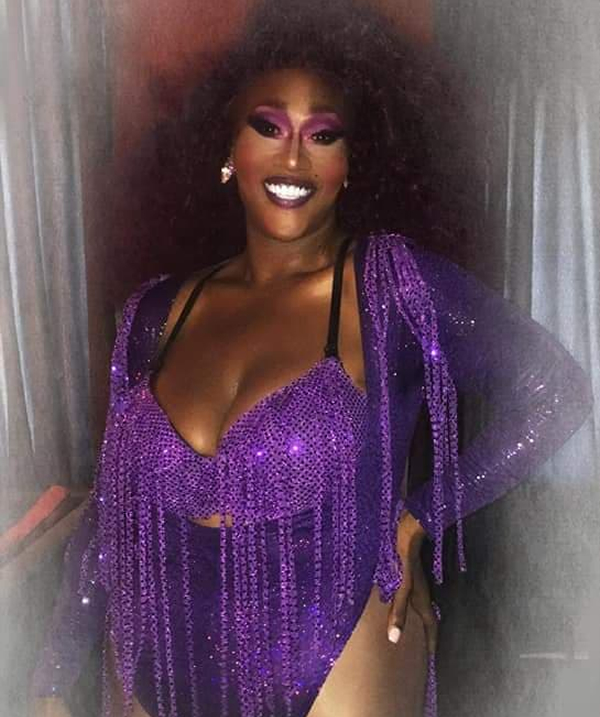
India Larelle Houston has been performing since 2005, which is her full-time work.
“I got into the art form because I had a love for the performing arts and I found a way to express myself through drag,” Houston says.
She’s a cast member at Chanellie’s Drag Brunch on Saturdays and a cast member at Perry’s on Sundays. She also performs at Red Bear Brewing Company and other venues in Washington and beyond.
Like everyone, she’s been “greatly affected” by COVID-19 as both her drag brunches are on hiatus until Washington moves into phase three reopening. Several other venues have either closed or are not offering live entertainment. By now, her Sunday brunch is happening virtually. She had savings, which has helped stay afloat.
Houston did not campaign for this award but says, “It feels absolutely wonderful to be loved and appreciated for what I do.”
“It is a great honor to be chosen Best of Gay D.C.,” she says. “The gods must have had a plan for me.” JD
BEST VIRTUAL A&E EVENT: PRIDE IN THE CITY, CAPITAL PRIDE
EDITOR’S CHOICE: TIE: Shaw’s Tavern Virtual Drag Bingo! & Desiree Dik’s: Oddball Virus
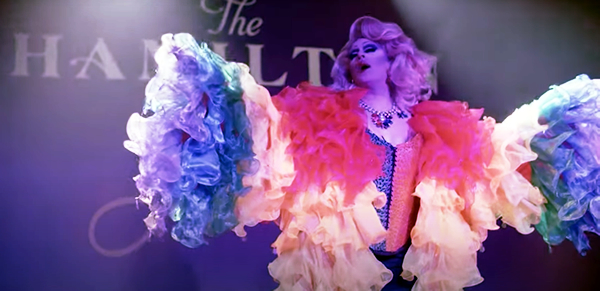
Pride in the City is a new web series that will introduce online viewers to some of Capital Pride staff’s “favorite people and places” in Washington.
“From bars and restaurants to cultural treasures and small businesses to local heroes who make our community proud,” Ryan Bos, Capital Pride executive director, said in an e-mail. “Along the way we’ll offer insider perspectives and the opportunity for viewers to participate in a variety of ways.”
Two have been held so far: #stillweentertain on June 28 and #stillwelaugh on Aug. 9 and are available for viewing on YouTube. A third installment will be announced after the Out Brigade (a Pride motorcade through the District) on Oct. 10. One is planned before year’s end.
Find out more at capitalpride.org/pride-in-the-city. JD
BEST OUTDOOR DRINKING: TRADE
EDITORS’ CHOICE: DACHA BEER GARDEN
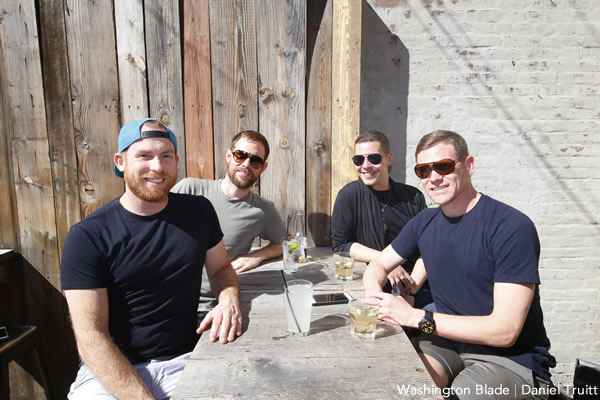
Trade (1410 14th St., N.W.) opened in 2015 and quickly established itself as one of the city’s most popular newer gay bars.
Like everyone else, the Trade team has had a long, slow haul back to some semblance of normalcy after moving to takeout only on March 15 (digital content was created by local performance artists), opening for limited outdoor service on May 29 and limited indoor service on June 22. Although some job descriptions “evolved” due to COVID, no staff was laid off, says Aaron Riggins, marketing and programming manager (he also bartends and manages shifts).
Because of capacity restrictions, business is not what it was pre-pandemic but its outdoor space has been in high demand. Reservations are recommended but walk-up tables are sometimes available.
Tito’s and Soda is the most popular drink. On tap, Bud Light and Stella are the most popular. Town is owned by John Guggenmos, Ed Bailey and Chachi Boyle, the team behind the now-closed Town Danceboutique.
In 2018, Trade won Best ABSOLUT Happy Hour and Best Neighborhood Bar in 2017.
Trade is popular, Riggins says, because it’s “all about family.”
“It’s humbling how supportive and loyal our patrons, staff and performance artists have been,” he says. “The health and well-being of our family is very important to us and we are taking the social distancing measures very seriously. We are also incredibly lucky to have an immensely talented creative family that has been helping us produce digital content while we can’t have onsite entertainment. Look out for more of the efforts as we get closer to Halloween.” JD
Trade
1410 14th St. N.W.
BEST CARRYOUT: DUPLEX DINER
EDITORS’ CHOICE: LE DIPLOMATE
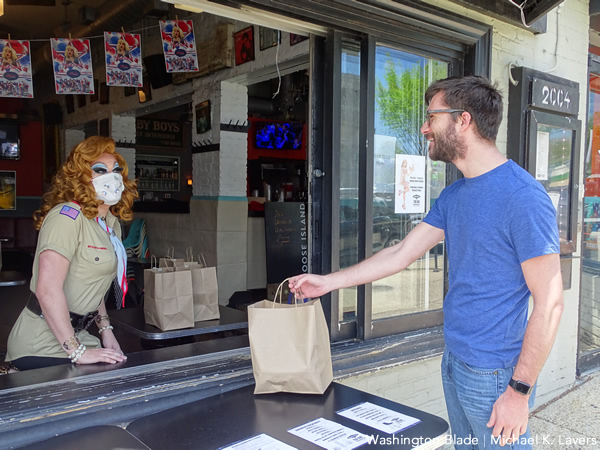
Early on in the pandemic when dining inside was unheard of, Duplex Diner (2004 18th St., N.W.) got creative with takeout and curbside service.
Resident drag queen Goldie Grigio worked the window and customers paid online in advance.
The diner is known for its no-nonsense menu that features everything from broccolIni salad, meatloaf, reuben and chicken tenders to tasty cocktails like the Famous Lemon Squeeze.
Owners Mark Hunker and Jeff McCracken had been regulars there since the late ‘90s and took over the Adams Morgan favorite in 2015.
Manager Kelly Laczko, who’s been at the diner for eight years, keeps things running smoothly.
“Things have been surprisingly good,” Laczko said in a Blade interview earlier this year. “We’ve had so much love from the community and people have been amazing. We’ve gotten a lot of support so far. We are very lucky.” JD
Duplex Diner
2004 18th St., N.W.
BEST COFFEESHOP: THREEFIFTY BAKERY AND COFFEE BAR
EDITORS’ CHOICE: COFFY CAFE
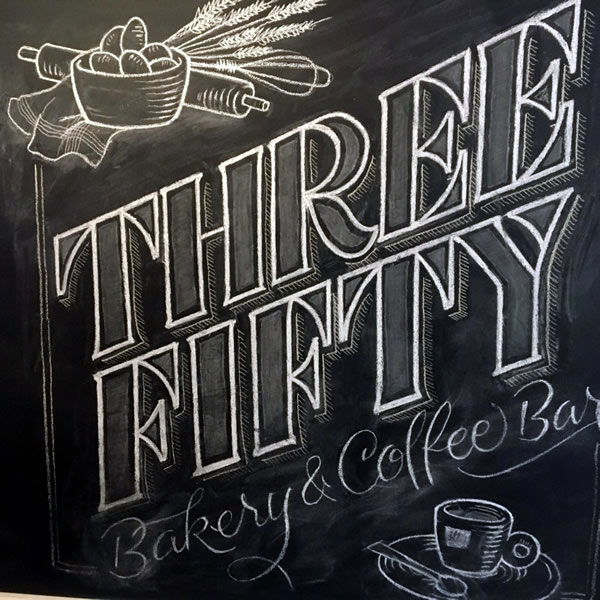
Business is almost back to pre-COVID levels at gay-owned ThreeFifty Bakery but owner Jimmy Hopper and his partner Michael Graham are concerned about the coming winter months.
“Things have been challenging during COVID,” Graham says. “However, we worked early to develop the safest possible customer experience by utilizing the patio space for single customer ordering. We have also been extremely fortunate to have the full support of the neighborhood. … We are concerned about the fall and winter months with indoor spacing limitations.”
Three Fifty, which opened in 2014, has 14 employees and says its customer base is about 30 percent LGBTQ. The most popular drink is a caramel latte and the most popular pastry is a tie between the quiche and apple zucchini bread.
“It feels really great to win this honor and we are so proud to be an LGBT-owned business and to have the continued support from the neighborhood, LGBT community and the District,” Graham says.
Three Fifty also won Best LGBT-owned Business in the Blade poll in 2017. This win is monumental — Three Fifty dethrones Compass Coffee, which had four consecutive wins in this category through 2019.
ThreeFifty Bakery and Coffee Bar
1926 17th St. N.W.
BEST COVID QUARANTINE PROMOTION OR EVENT: GAY MEN’S CHORUS OF WASHINGTON, DC “SUMMER SOIREE” WITH LESLIE JORDAN
EDITOR’S CHOICE: TAGG’S QUEERANTINECON

The Gay Men’s Chorus of Washington wasn’t able to have its annual Spring Affair this year because of COVID, so instead, organizers held a Summer Soiree Aug. 15, which went off without any glitches or technical issues, had 679 registered attendees and raised about $125,000 for the organization and now wins this Blade readers’ poll award. Not bad!
The Chorus performed virtually and performed bits; Leslie Jordan was the celebrity guest.
The Chorus’s next event is “Losing My Mind: a Celebration of Sondheim,” a virtual cabaret on Oct. 17 at 7 p.m. This year’s holiday show is also online.
The Chorus and its ensembles are rehearsing entirely via Zoom. JD
BEST RESTAURANT: LOGAN TAVERN
EDITORS’ CHOICE: INN AT LITTLE WASHINGTON
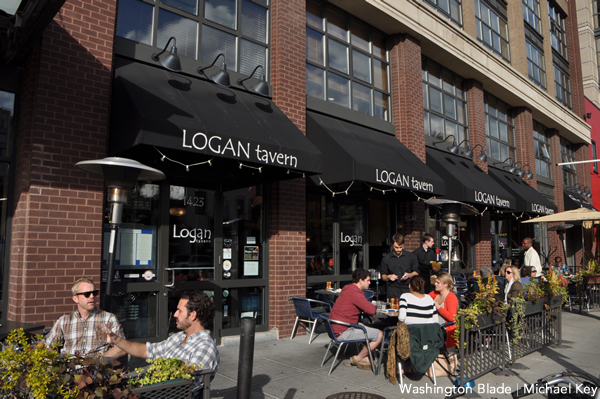
Perhaps in these uncertain times, we don’t want something fancy and boundary pushing. Logan Tavern’s win here and its unpretentious charm — upscale but never snooty — seems to suit our 2020 sensibilities.
Logan Tavern is owned and operated by EatWell DC and combines friendly prices with a hip, laid-back atmosphere. Logan is a great go-to place for delicious, un-fussy food. It’s a place where you recognize the ingredients, the flavors and the dishes you are being served. The drinks are affordable and the service is excellent with friendly and accommodating staff.
It’s mostly hearty American fare. Dinner entrees like boneless southern fried chicken, crispy skin-on rockfish, crab-stuffed chile relleno and lemon ricotta gnocchi are popular staples.
Logan won Best Bloody Mary in these awards in 2018 and Best Date Restaurant in 2012. (JD)
Logan Tavern
1423 P St., N.W.
BEST LOCAL WEBSITE/BLOG: BRIGHTEST YOUNG THINGS
EDITORS’ CHOICE: FEED THE MALIK
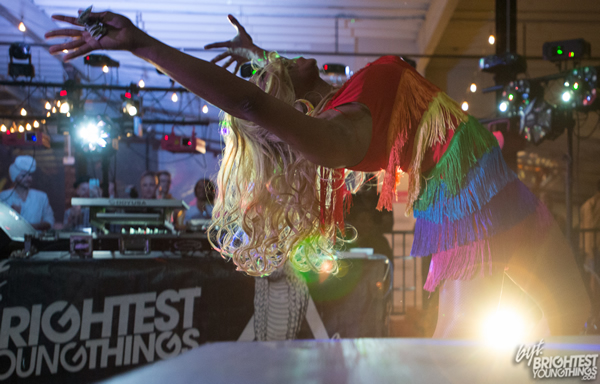
Brightest Young Things was hit “incredibly hard” by COVID-19, says co-founder Svetlana Legetic, a straight ally. It required “a complete re-do of how we do things and earn our living,” she says.
“There was absolutely no plan B such as relying on investors or fairy godparents,” she says.
BYT bills itself as an editorial and event platform for Washington, New York and Chicago. As the world has shifted to virtual events, at least for large gatherings, BYT has pivoted offering content such as “Tips for Sober October,” “Let Our Very Own Prya Konings Be Your World Vegetarian Day Sage,” “It’s OK You Are Not OK” and more at brightestyoungthings.com.
“Obviously there are no physical events or festivals, but we have seen our online engagement rise exponentially and the virtual projects we have worked on whether independently or with partners like Smithsonian … confirmed to us that the community needs that positive, quality content because it makes them feel connected to each other, even when apart, and we can’t underestimate the value of that,” Legetic says.
Pre-COVID there were 12 full-time staffers; there are now four and a team of freelance contributors. While not exclusively queer, BYT was conceived as being LGBT-inclusive from its inception. JD
BEST SALON/SPA: LOGAN 14
EDITORS’ CHOICE: VSL HAIR DESIGN

Temperatures are taken for anyone who comes in the building, payments are totally cashless, work stations have been spread out and sanitation continues at a high level. These are just some of the changes that have allowed Logan 14 Aveda Salon & Spa to stay open amid the pandemic.
“What hasn’t changed is what we do,” says Katie Rose, general manager, who has been at the salon, which has 41 staffers, for five years. “We service our guests and make people look and feel better about themselves.”
The salon was closed from March 16-June 10 and upon reopening offered free services to health care workers nominated by customers and staff.
Rose says business is not up to pre-pandemic levels and a few staff members were laid off but she says slowly things are getting busier. She says their customers, about 75 percent of whom are LGBT she guesses, have “been amazing.”
“It’s been heartwarming to see the outpouring of love from our guests and how glad they are to come back in,” Rose says.
This is Logan 14’s fifth consecutive win in this category, which Rose says “means the world to us.” JD
Logan 14 Aveda Salon & Spa
1314 14th St., N.W.
BEST LOCAL TV/RADIO PERSONALITY: CHUCK BELL & WENDY RIEGER, NBC 4 (TIE)
RUNNER-UP: LARRY MILLER, WUSA9

Good ole’ Chuck Bell, meteorologist at NBC4 since October 2004. He was runner-up last year (and also in 2015, 2016 and 2018). He also won this award in 2014 and 2012.
“It’s very flattering,” he said of a previous win. “I’m pleasantly surprised that people are taking note.”
He’s joined this year by his NBC4 colleague Wendy Rieger, the 2015 winner.
Rieger stumbled upon broadcast journalism when she was a college drop-out looking to make money as an actress. She found a job reading the news on camera in Norfolk, Va., and fell in love with the business.
Bell is gay; Rieger is an ally. JD
BEST ABSOLUT TO-GO COCKTAILS: NELLIE’S SPORTS BAR
EDITORS’ CHOICE: Annie’s Paramount Steakhouse
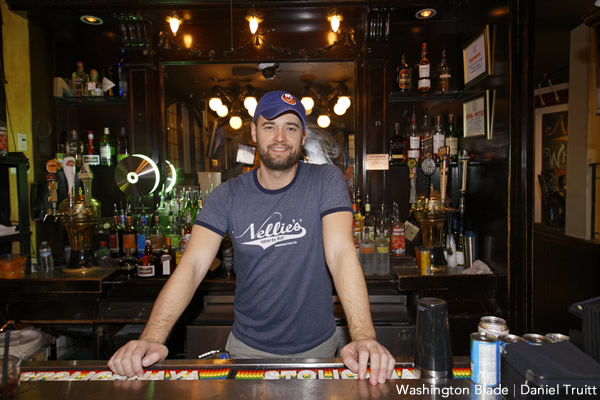
Nellie’s huge outdoor rooftop space has poised it well to survive COVID and this D.C. institution soldiers on.
“Things are good,” says owner Doug Schantz. “We’re missing the old normal like everybody else but things are better than expected.”
Nellie’s is following all the D.C. restrictions under phase 2 reopening and is following all the usual guidelines but has moved its “streetery” seating to its rooftop. A bus stop on U Street and limited space on 9th meant the rooftop was its best option. The two open areas and eight huge windows that allow ample air circulation have allowed the popular gay sports bar to stay busy and follow guidelines.
But it’s still a struggle. Schantz says 50 percent capacity figures were estimated by standing patrons so with seating, it’s more like 20 percent to remain compliant, but that, of course, is the new normal. There are currently 15 on staff, down from 40 pre-COVID.
To-go cocktails — illegal pre-COVID — have proven enormously popular. Pouches are decorated with two labels — one says, “Drink your juice, Shelby” and features flavors; the other is a parody of the Campbell’s soup can but says Nellie’s Soup instead. Other cocktails, wine or beer can be purchased in 14 oz. recyclable cups with lids. One food item (a cookie, tater tots, whatever) must be purchased with each to go alcoholic beverage. All the cups, lids and straws are recyclable.
Schantz says his clientele has stayed faithful and many come weekly. Weekend drag brunches are on hiatus. The huge site, which opened in 2007, has 37 TVs so it’s a great place to watch the debates, Schantz says.
Nellie’s is a perennial favorite in the Best of Gay D.C. Awards. It usually wins something every year. Last year it won Best Drag Show for its brunch, in 2018 it won Best Margarita and in 2016 it won Hottest Bar Staff. JD
Nellie’s Sports Bar
900 U St., N.W.
BEST OUTDOOR DINING: ANNIE’S PARAMOUNT STEAKHOUSE
EDITORS’ CHOICE: RED BEAR BREWING CO.
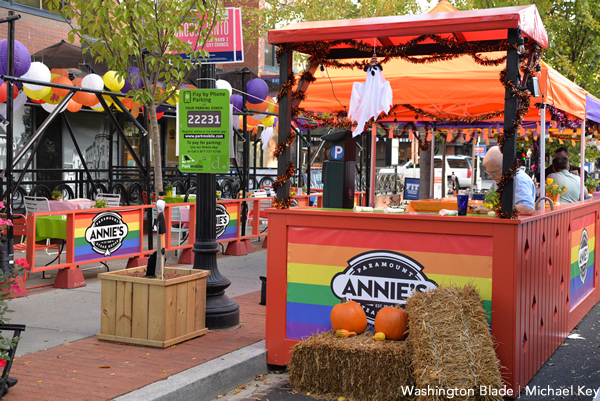
Annie’s Paramount Steakhouse, a Washington institution since 1948, is now open for both dine-in and carry out and thanks to its outdoor patio, it has won Best Outdoor Dining, a new category for this year’s Best of Gay D.C. Awards.
In early 2019, Annie’s received the James Beard Foundation’s America’s Classic Award, which honors restaurants with “timeless appeal” and that serve “quality food that reflects the character of their communities.” Annie’s was only the third D.C. restaurant to earn that distinction.
George Katinas and his family opened Paramount Steakhouse in 1948. Katinas hired his sister Anne “Annie” Katinas Kaylor, to work the bar. Her popularity led to the restaurant changing its name to Annie’s Paramount Steakhouse. She died in 2013.
In the early years of these awards, Anne’s was a perennial favorite winning Best Overall Restaurant (2001, 2002), Tried & True (2003, 2004, 2005, 2006), Best Late Night (2004, 2006, 2007, 2008, 2012), Best Brunch (2005) and Best Steakhouse (2007, 2008). Kaylor was named Local Hero Female in 2001.
The menu is hearty American food with an array of burgers, sandwiches, soups and salads available for lunch. House specials like “Bull in the Pan” (sirloin tips), basil-pine nut pesto pasta and pot roast are staples of the dinner menu. JD
Annie’s Paramount Steakhouse
1609 17th St., N.W.
BEST STRAIGHT ALLY: PAMALA STANLEY
RUNNER-UP: REP. ALEXANDRIA OCASIO-CORTEZ
It was a busy year for singer Pamala Stanley, the ‘80s disco star who has enjoyed a long and wildly popular residency in Rehoboth Beach, Del. In January, she announced plans to move her show from the Blue Moon to The Pines. Then the pandemic hit. Immediately, Stanley pivoted, staging virtual shows from home. Then she took the show to The Pines stage with a virtual audience of hundreds watching from the safety of home while Stanley danced and sang her heart out, taking requests online. She used the shows as fundraisers for Beebe Medical Foundation. Owners of The Pines announced Stanley’s first concert on April 26 was so successful that she would perform a virtual tea dance to benefit Beebe every Saturday until The Pines was allowed to reopen.
At that first benefit, Stanley dedicated one of her biggest hits, “Coming Out of Hiding,” to all her fans who were getting restless after weeks in quarantine: “This is for everybody,” she said, “because we have been in hiding for way too long, don’t you agree?”
The four-week virtual fundraisers with Stanley, Mona Lotts, and Michael Solonski brought in $19,000 for Beebe Medical Foundation to help cover expenses incurred because of the pandemic.
Stanley has since resumed regular shows at The Pines, Thursday-Sunday nights while observing social distancing protocols in the large Pines venue. JD

BEST PRO ATHLETE: NATASHA CLOUD, WASHINGTON MYSTICS
RUNNER-UP: SEAN DOOLITTLE, WASHINGTON NATIONALS

Last year, Washington Mystics guard Natasha Cloud helped her team win its first WNBA championship. She’s also a vocal and public supporter for causes she believes in like ending gun violence and supporting the Black Lives Matter Movement.
“Juneteenth is a day of celebration,” Cloud said during a Wizards and Mystics peaceful protest against racial injustice and police brutality. “It’s a day of liberation. It’s a day that we were finally freed from our bondage. We couldn’t think of a better day than today to come out here and come together, collectively and unified in solidarity with one another for a greater cause.”
Though Cloud announced in June that she would sit out the 2020 season due to her concerns about systemic racism and the ongoing pandemic, voters recognized her excellence both on and off the court with a “Best Pro Athlete” award. PVS
In 2014, Bishop Allyson Abrams resigned as pastor of a small Detroit church after announcing that she had married her wife in Iowa. One year later, a Supreme Court ruling would legalize same-sex marriage in the U.S., but at the time she may have felt like she was risking everything to be with the woman she loved. She set up her ministry in the D.C. area and has remained a symbol of strength and courage ever since.
“People say it’s amazing to hear a pastor say that God loves us the way we are,” Abrams told the Blade back in 2014. “I’m always going to make sure God knows them.”
This year Allyson’s community supported her with a “Best Clergy” award. PVS
BEST D.C. PUBLIC OFFICIAL: MAYOR MURIEL BOWSER
RUNNER-UP: U.S. REP. ELEANOR HOLMES NORTON (D-D.C.)

In 2017, Mayor Bowser wore a bright yellow dress and a big smile while accepting her award for “Best D.C. Public Official” at the Blade’s Best of Gay D.C. awards. Times have changed, particularly this year, marking her fifth in office.
Bowser assumed office as mayor in 2015 after previously representing Ward 4 on the D.C. City Council since 2007. A native of the region, she is the District’s second female mayor.
This year, Bowser helmed the District through a deadly pandemic, its devastating economic fall out and desperate calls for racial justice. A long-time supporter of D.C.’s LGBTQ community, Bowser tweeted on June 15 in response to the Supreme Court’s landmark ruling protecting LGBTQ employees against workplace discrimination, “There’s more work to be done, but today we celebrate equality. Happy pride & keep fighting.”
Today her smile represents the District’s resilience and her bright yellow paint sent a message of solidarity seen around the world. PVS
BEST NON-PROFIT: SMYAL
EDITORS’ CHOICE: CENTER FOR BLACK EQUITY
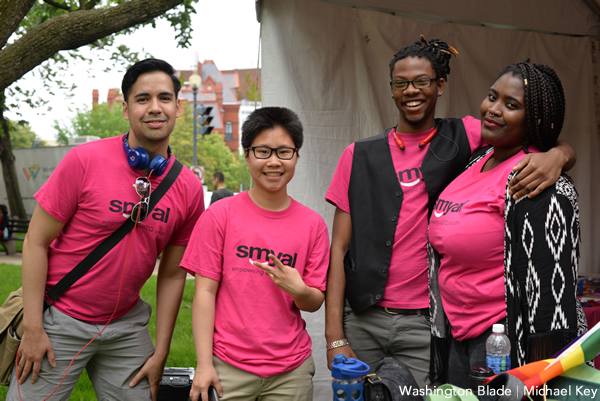
SMYAL has been working with LGBTQ youth for more than 35 years and its empowered leaders have been staffing tables and community organizing at events across the city.
This non-profit, now known for its after-school programs, youth counseling services, and educational and training programs for youth service providers working in schools, shelters, government agencies and hospitals, began in 1984 by local professionals and activists.
According to its website, SMYAL started with a conference organized to address urgent youth issues after an LGBTQ-identifying youth was hospitalized. Today SMYAL is a leader in providing support services and advocacy to youth in need of affirming care.
During an especially hard year for LGBTQ youth who often look to Pride as a means to connect with others and themselves, the community recognized SMYAL as the year’s “Best Non-profit” for its efforts to maintain a sense of connection for our youth. PVS
MOST COMMITTED ACTIVIST: SULTAN SHAKIR
RUNNER-UP: RAYCEEN PENDARVIS
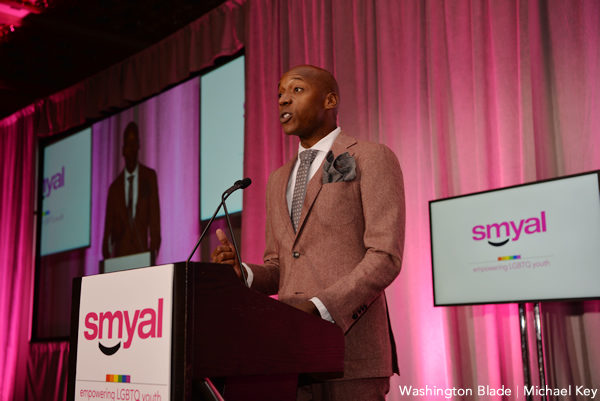
Since taking the helm of SMYAL in 2014, Executive Director Sultan Shakir has been a tireless staple on social and traditional media outlets advocating for LGBTQ youth. However, during this summer of social unrest, Shakir used his platform to call for systemic change.
“SMYAL condemns the excessive use of force employed by the police towards peaceful protesters in Washington, D.C. and across the country, and we stand with the Black Lives Matter movement,” he wrote in a statement tweeted June 9 by SMYAL. “Our hope is that by doubling down on our mission to empower young people, we will help create a society where Black people don’t have to ask for solidarity just to stay alive, a society in which our lives matter.”
Shakir’s dedication was celebrated by the community this year with Gay D.C.’s “Most Committed Activist” recognition for 2020. PVS
BEST CLERGY: BISHOP ALLYSON ABRAMS
RUNNER-UP: REV. DWAYNE JOHNSON
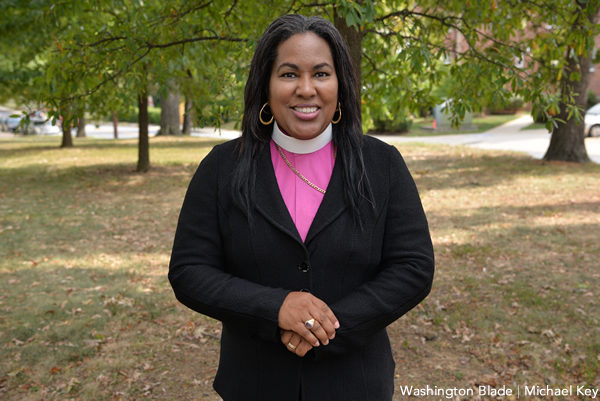
BEST LGBTQ SOCIAL GROUP: IMPERIAL COURT OF WASHINGTON, D.C.
EDITORS’ CHOICE: IMPULSE DC
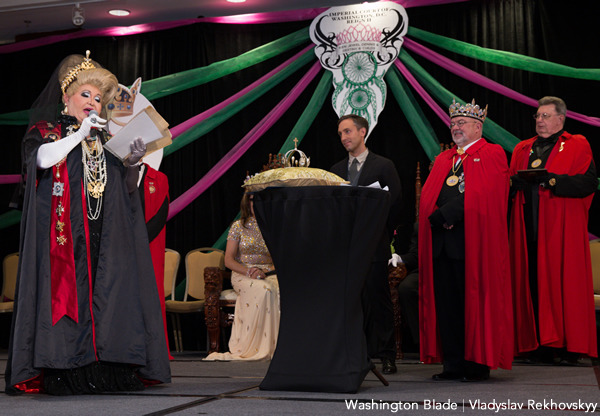
In June, “Queen of the Capital,” an independent documentary film about D.C. drag artist Daniel Hays’ quest as Muffy Blake Stephyns to be voted Empress of the Imperial Court of Washington in 2014, premiered at the Newseum and began the festival circuit.
Today the Imperial Court of Washington D.C., is one of many LGBTQ-affirming social groups across the country and in 2011 it joined the International Imperial Court System, which began in San Francisco in 1965.
This year, the community honored the Imperial Court of Washington D.C. with a “Best LGBTQ Social Group” award. PVS
Imperial Court of Washington D.C.
P.O. Box 2616
Washington, DC 20013
BEST LOCAL TV/RADIO STATION: HOT 99.5
EDITORS’ CHOICE: WTOP 103.5

This top D.C. radio station not only keeps the District current on the latest hits, its Facebook page covers the gamut from celebrity break ups, weddings and pregnancies to strangely interesting stories of Instagram influencers caught using fake private jets as sets for photo shoots.
During a time when everyone needed to just shut out the world and go 2015 again, Hot 99.5 earned another top spot from voters as the “Best Local TV/Radio Station.” PVS
BEST BUSINESSPERSON: BRYAN VAN DEN OEVER, RED BEAR BREWING
RUNNER-UP: EBONE BELL, TAGG MAGAZINE

Back in April, when pandemic lockdowns and unemployment levels were at their worst, Red Bear Brewing’s Bryan Van Den Oever told the Blade, “We’ll see what happens when the dust settles. We’ll fight like hell until then.”
Throughout the crisis, Red Bear and other popular local LGBTQ businesses like Pitchers, A League of Her Own, JR.’s, Green Lantern and others continued to fight to be a vital connection to their staff and the community, both virtually and now on a limited in-person basis.
This year the community showed its appreciation for a continued dedication to beer, music and drag with a “Best Businessperson” award to Van Den Oever and the rest of Red Bear’s feisty, tenacious team for not just surviving the pandemic, but innovating and thriving, inspiring the rest of the small business community in the process. PVS
Red Bear Brewing Company
209 M St., N.E.
BEST LGBTQ-OWNED BUSINESS: TRADE & NUMBER NINE
EDITORS’ CHOICE: BITE THE FRUIT
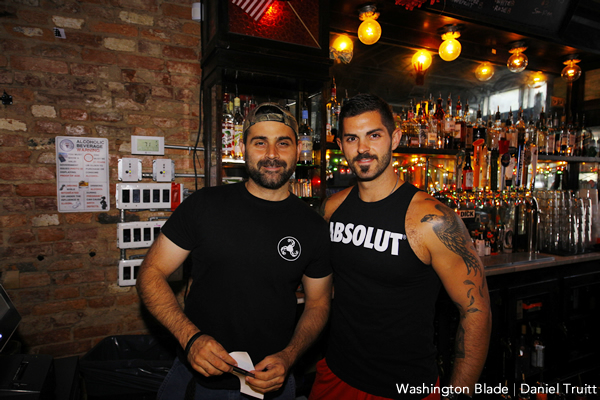
D.C.’s popular LGBTQ-friendly night spots are an important part of the community, so TRADE tweeted on Sept. 24, “Winter is coming…and we’ll be ready” followed by a promise to provide heaters and socially distanced comfort amid an ongoing pandemic crisis.
TRADE opened for business in 2015 and at the time co-owner John Guggenmos, also co-owner of Number Nine, planned for a new bar that included a dance floor and live DJs. Five years later TRADE, like other small businesses devastated by the pandemic, relies heavily on the community to keep its doors open.
Similarly, Number Nine updated its website to thank the community for its support during the pandemic. “We wouldn’t be able to get through this without the support of our amazing patrons and staff. So, thank you.” PVS
TRADE
1410 14th St., N.W.
NUMBER NINE
1435 P. St., N.W.
BEST VIRTUAL FITNESS CLASSES: VIDA
EDITORS’ CHOICE: JASON LONG FITNESS
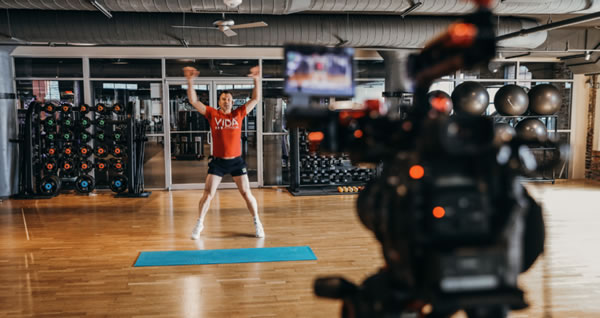
Vida is no stranger to winning this category, and staying afloat while innovating during the pandemic brought unforeseen challenges to this popular, perennial winner. They rose to that challenge, taking their award-winning fitness classes online and continuing to deliver results for clients. JD
Multiple D.C. locations
BEST MEDICAL PROVIDER: DR. ROBYN ZEIGER
EDITORS’ CHOICE: WHITMAN-WALKER HEALTH
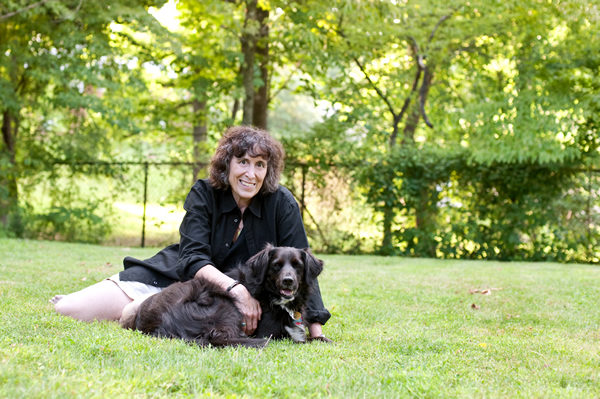
Dr. Robyn Zeiger has won this award several times for her work as a licensed clinical professional counselor.
“You walk into a therapist’s office and you know they are also LGBT so you don’t have to explain anything,” she told the Blade upon winning this award in 2017. You don’t have to teach them. You can just be yourself and you don’t have to justify anything.”
In addition to counseling, Zeiger has worked as an adjunct senior lecturer at University of Maryland. JD
Dr. Robyn Zeiger
BEST VETERINARIAN: FRIENDSHIP HOSPITAL FOR ANIMALS
EDITORS’ CHOICE: DISTRICT VETERINARY HOSPITAL

Friendship Animal Hospital
4105 Brandywine St., N.W.
BEST REAL ESTATE AGENT: MICHAEL MOORE, COMPASS
RUNNER-UP: STACEY WILLIAMS-ZEIGER, ZEIGER REALTY
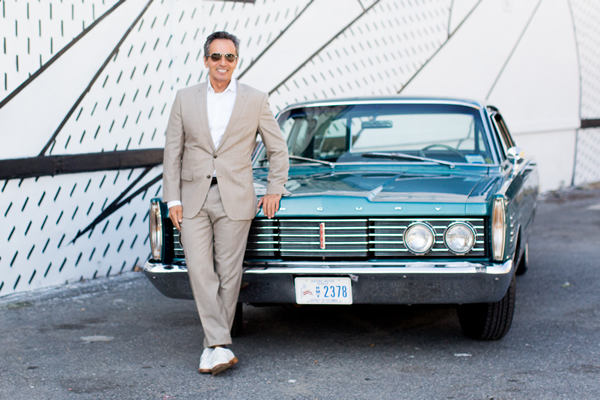
Michael Moore won this category last year. Moore credits his success to consistent customer service, telling the Blade last year: “My career began with first-time homebuyers. In time, first-time buyers become sellers and they buy another house and they tell their friends. Now my business is almost entirely referrals and repeats.
“I’m a huge proponent of staging and doing what it takes to project the property in its best light,” he says. “I try to create a situation that when a prospective buyer walks in the door, they love it, and think to themselves ‘won’t my friends be jealous when they see me living here.’” JD
Michael Moore
Compass
1313 14th St., N.W.
BEST REAL ESTATE GROUP: JENN SMIRA TEAM, COMPASS
RUNNER-UP: MARIN HAGEN & SYLVIA BERGSTROM, COLDWELL BANKER
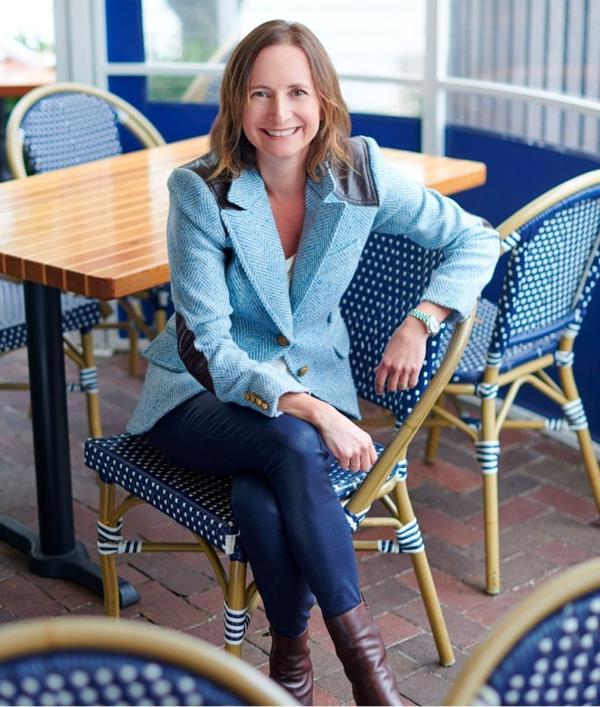
As one of the top five agent groups in all of D.C., The Jenn Smira Team brings more than 50 years of combined real estate experience to each transaction. Smira and her team have cultivated a loyal network of previous clients and referrals as they empower buyers and sellers to achieve their goals. A one-stop shop for all your real estate needs, Smira’s team offers an impressive range of in-house expertise — from marketing and PR, to staging and listing guidance. Smira is a previous board member of the District of Columbia Association of Realtors (DCAR), DCAR Public Policy Committee, and currently on the board of DC WISE. JD
Jenn Smira Team
Compass
1313 14th St., N.W.
BEST LAWYER: AVA BENACH
RUNNER-UP: AMY NELSON

Ava Benach works as an immigration lawyer and is the founder and coach of DC Girls Baseball. She has written op-eds for the Blade, including a piece on the need to overcome baseball’s sexist and homophobic traditions. She’s not just a skilled professional, but an outspoken advocate for LGBTQ equality. JD
Benach Collopy LLP
4530 Wisconsin Ave., N.W.
Rehoboth Beach
BEST REHOBOTH DRAG QUEEN: ROXY OVERBROOKE
RUNNER-UP: MONA LOTTS
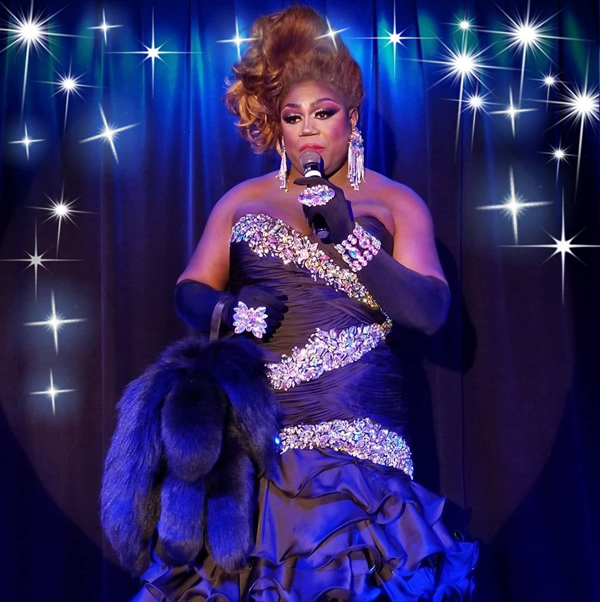
It has been a triumphant year for Roxy Overbrooke (aka Charles Bounds). Bounds had a particularly nasty time with COVID-19, contracting the disease in March. He was sick for about a month and was hospitalized in the Rehoboth area for 15 days, an experience he calls “intense, scary and life changing.”
“With that said, though, everyone at Beebe Healthcare was amazing,” he told the Blade earlier this year. “I’m feeling much better now.” Bounds grew up going to Rehoboth with family and loved it for its beaches and moved there full time about 10 years ago.
Bounds entered a competition 12 years ago and “caught the bug,” for drag. Now it’s his full-time work. Bounds performs as Roxy Overbrooke at the Blue Moon (35 Baltimore Ave., Rehoboth Beach, Del.), hosting bingo, karaoke, a drag show and celebrity impersonation shows. (Check bluemoonrehoboth.com for updated event schedules.) Fully recovered from COVID, Bounds continued to wow socially distanced crowds all summer with his booming voice and, of course, glittering gowns. A beautiful person inside and out, Bounds is a fighter and Roxy is a star performer.
BEST REHOBOTH OUTDOOR DINING: PURPLE PARROT
EDITORS’ CHOICE: AQUA
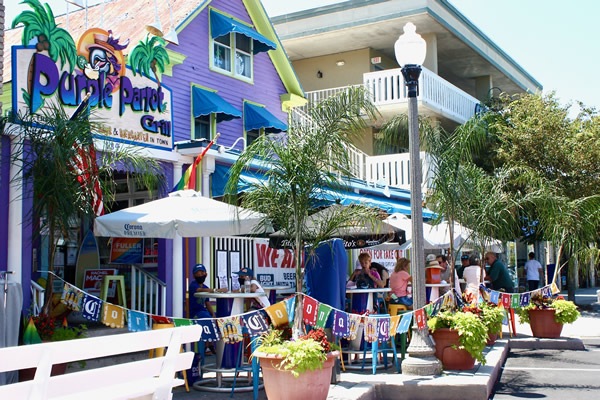
The gay-owned Purple Parrot is a Rehoboth institution and when the pandemic hit, the bar/restaurant was well positioned for outdoor service with its popular Biergarten out back and sidewalk seating in front. It hasn’t been easy, but the indefatigable staff — especially Chandler and Jamie — maintained socially distant protocols all summer, keeping locals and tourists alike safe, fed, and happy.
Purple Parrot
134 Rehoboth Ave.
Rehoboth Beach, DE 19971
BEST REHOBOTH BARTENDER: HOLLY LANE
RUNNER-UP: JAMIE ROMANO
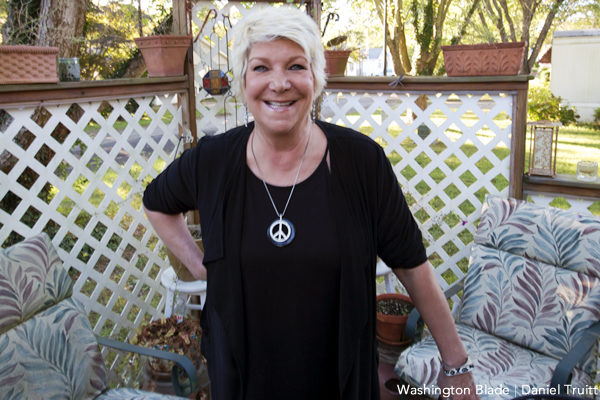
This is Holly Lane’s third win as Best Rehoboth Bartender, taking the prize in 2014 and 2017. Normally behind the bar at Cafe Azafran with her trademark headset belting out tunes while making drinks, Lane went on hiatus for much of the year due to COVID closures. But Azafran — and Lane — are back, though not to full capacity, of course. Things are different, but Lane’s infectious kindness and bartending and singing skills keep her loyal customers coming back, no matter what.
BEST REHOBOTH LIVE SHOW: CLIMAX WITH MAGNOLIA APPLEBOTTOM AT BLUE MOON
EDITORS’ CHOICE: PAMALA STANLEY AT THE PINES
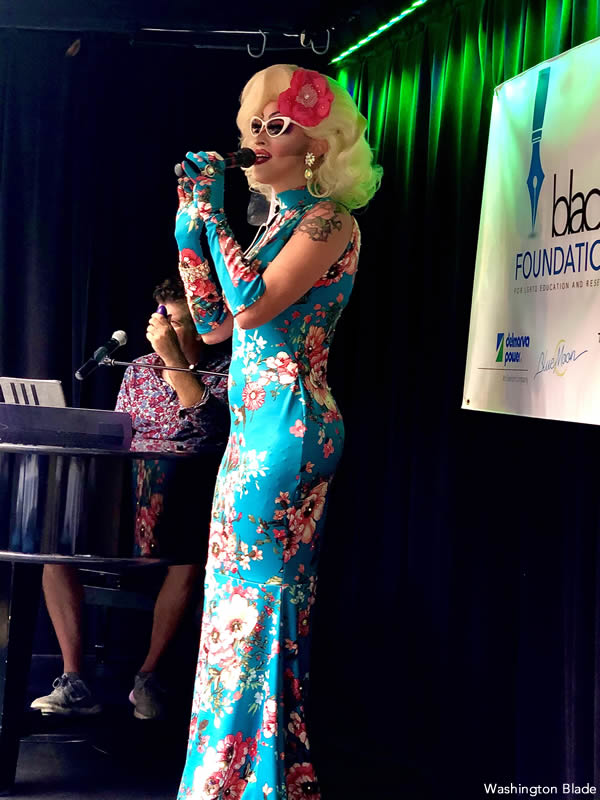
The multi-talented Magnolia Applebottom brings her sharp wit and singing skills to the Blue Moon stage for the popular Climax show. Last year’s Best Rehoboth Drag Queen winner, Magnolia wins this new category this year amid a town full of live entertainment competition.
BEST REHOBOTH COFFEESHOP: RISE UP
EDITORS’ CHOICE: COFFEE MILL
Rise Up in Rehoboth is the 10th location in this regional chain, which operates in Annapolis, Cambridge, and Edgewater, among others. The cafe is located at the roundabout just as you enter town. You can’t miss the black-and-white building. Rise Up offers breakfast, lunch, and dinner. There’s even a full bar, a gorgeous live edge wood bar sits to the right of the coffee station. The 502 Bar and Rise Up offer outdoor seating and are pet friendly, a perfect option in these socially distanced times.
BEST REHOBOTH RESTAURANT: BLUE MOON
EDITORS’ CHOICE: AZZURRO ITALIAN OVEN & BAR
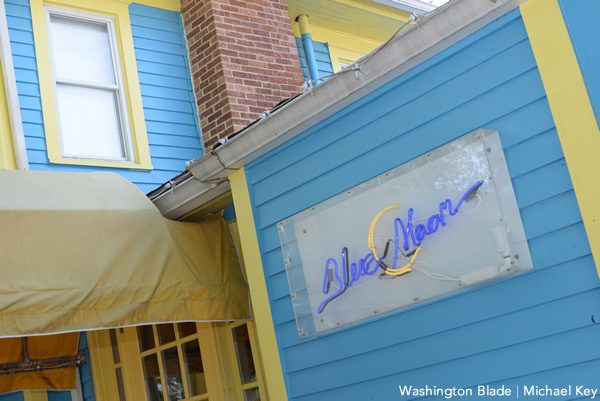
The Blue Moon has won this award so many times that it’s hard to count. The iconic Moon persevered through COVID, offering its flawless, high-end menu for takeout during the spring and reopening this summer with socially distanced tables inside. A COVID silver lining this summer: You could order the full menu on the bar side while being entertained by talented NYC pianist Nate Buccieri.
BEST REHOBOTH REAL ESTATE AGENT: LEE ANN WILKINSON
RUNNER-UP: JASON ABELA
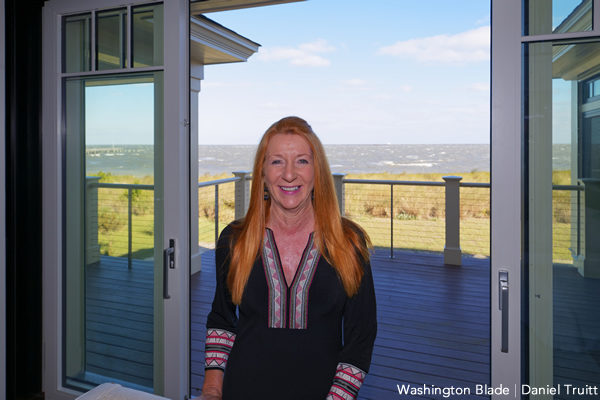
This is Lee Ann Wilkinson’s third consecutive win in this category. The Lee Ann Wilkinson Group has ranked #1 in real estate sales in Sussex County, Del., for more than 20 years and ranks #3 nationally for the Berkshire Hathaway HomeServices real estate network. In addition, she is a regular contributor to the Blade. Our readers know her through her informed articles on real estate trends at the Delaware beaches.
16698 Kings Hwy A.
Lewes, Del.
BEST REHOBOTH BUSINESS: DIEGO’S
EDITORS’ CHOICE: BLUE MOON
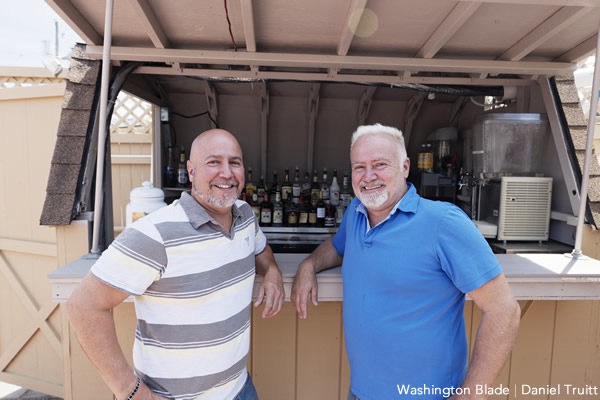
It was a rough year for Joe Ciarlante-Zuber (right) and his husband and business partner Darryl Ciarlante-Zuber. Darryl contracted COVID-19 and spent 54 days in the hospital, 34 of those in the ICU. The two own the popular Diego’s, which has a large outdoor patio space. They converted it into a beach-themed bar, complete with truckloads of sand. Joe worked hard all season, ensuring customers stayed six feet apart and taking everyone’s temperature at the door. The dedication paid off, as Diego’s resumed as a busy fixture on the summer scene. Darryl’s recovery and Joe’s perseverance proved an inspiration to the entire community.
BEST REHOBOTH FITNESS INSTRUCTOR: ELI LYNN
RUNNER UP: TANNER HOLT
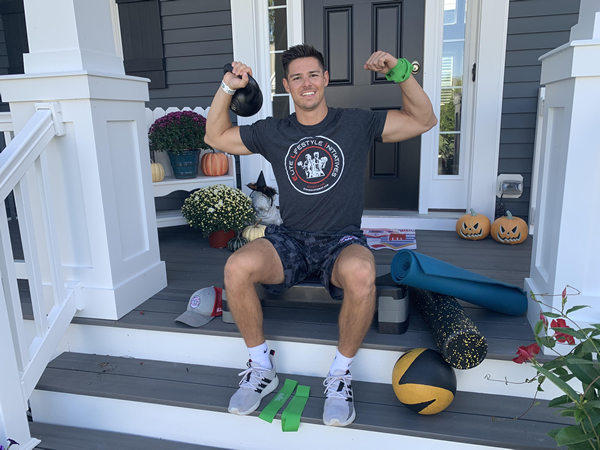
Eli Lynn is owner and head trainer at Elite Lifestyle Initiatives and trains clients in the comfort of their homes. Lynn, who’s straight, specializes in functioning training, strength and conditioning training and balance training.
As for his approach to new clients, he says, “First, I ask them what their goals are and if they have any previous injuries or surgeries. After one session you can tell what they need to work on and what needs to improve.”
Lynn says COVID has forced him to train some clients through FaceTime, but the pandemic has also helped his business grow, “because no one wants to work out at a gym so me coming to their house and training them in their own home, everyone feels safer to work out that way.”
As for his advice for those who have gained weight during COVID: “I tell them that everyone is in the same spot as them and what matters the most is you’re here and starting to work out. Everyone has different ways of dealing with COVID and you already took a huge step forward by hiring me and helping you get back in shape.”
Eli Lynn
a&e features
What to expect at the 2024 National Cannabis Festival
Wu-Tang Clan to perform; policy discussions also planned

(Editor’s note: Tickets are still available for the National Cannabis Festival, with prices starting at $55 for one-day general admission on Friday through $190 for a two-day pass with early-entry access. The Washington Blade, one of the event’s sponsors, will host a LGBTQIA+ Lounge and moderate a panel discussion on Saturday with the Mayor’s Office of LGBTQ Affairs.)
With two full days of events and programs along with performances by Wu-Tang Clan, Redman, and Thundercat, the 2024 National Cannabis Festival will be bigger than ever this year.
Leading up to the festivities on Friday and Saturday at Washington, D.C.’s RFK Stadium are plenty of can’t-miss experiences planned for 420 Week, including the National Cannabis Policy Summit and an LGBTQ happy hour hosted by the District’s Black-owned queer bar, Thurst Lounge (both happening on Wednesday).
On Tuesday, the Blade caught up with NCF Founder and Executive Producer Caroline Phillips, principal at The High Street PR & Events, for a discussion about the event’s history and the pivotal political moment for cannabis legalization and drug policy reform both locally and nationally. Phillips also shared her thoughts about the role of LGBTQ activists in these movements and the through-line connecting issues of freedom and bodily autonomy.
After D.C. residents voted to approve Initiative 71 in the fall of 2014, she said, adults were permitted to share cannabis and grow the plant at home, while possession was decriminalized with the hope and expectation that fewer people would be incarcerated.
“When that happened, there was also an influx of really high-priced conferences that promised to connect people to big business opportunities so they could make millions in what they were calling the ‘green rush,'” Phillips said.
“At the time, I was working for Human Rights First,” a nonprofit that was, and is, engaged in “a lot of issues to do with world refugees and immigration in the United States” — so, “it was really interesting to me to see the overlap between drug policy reform and some of these other issues that I was working on,” Phillips said.
“And then it rubbed me a little bit the wrong way to hear about the ‘green rush’ before we’d heard about criminal justice reform around cannabis and before we’d heard about people being let out of jail for cannabis offenses.”
“As my interests grew, I realized that there was really a need for this conversation to happen in a larger way that allowed the larger community, the broader community, to learn about not just cannabis legalization, but to understand how it connects to our criminal justice system, to understand how it can really stimulate and benefit our economy, and to understand how it can become a wellness tool for so many people,” Phillips said.
“On top of all of that, as a minority in the cannabis space, it was important to me that this event and my work in the cannabis industry really amplified how we could create space for Black and Brown people to be stakeholders in this economy in a meaningful way.”

“Since I was already working in event production, I decided to use those skills and apply them to creating a cannabis event,” she said. “And in order to create an event that I thought could really give back to our community with ticket prices low enough for people to actually be able to attend, I thought a large-scale event would be good — and thus was born the cannabis festival.”
D.C. to see more regulated cannabis businesses ‘very soon’
Phillips said she believes decriminalization in D.C. has decreased the number of cannabis-related arrests in the city, but she noted arrests have, nevertheless, continued to disproportionately impact Black and Brown people.
“We’re at a really interesting crossroads for our city and for our cannabis community,” she said. In the eight years since Initiative 71 was passed, “We’ve had our licensed regulated cannabis dispensaries and cultivators who’ve been existing in a very red tape-heavy environment, a very tax heavy environment, and then we have the unregulated cannabis cultivators and cannabis dispensaries in the city” who operate via a “loophole” in the law “that allows the sharing of cannabis between adults who are over the age of 21.”
Many of the purveyors in the latter group, Phillips said, “are looking at trying to get into the legal space; so they’re trying to become regulated businesses in Washington, D.C.”
She noted the city will be “releasing 30 or so licenses in the next couple of weeks, and those stores should be coming online very soon” which will mean “you’ll be seeing a lot more of the regulated stores popping up in neighborhoods and hopefully a lot more opportunity for folks that are interested in leaving the unregulated space to be able to join the regulated marketplace.”
National push for de-scheduling cannabis
Signaling the political momentum for reforming cannabis and criminal justice laws, Wednesday’s Policy Summit will feature U.S. Sens. Raphael Warnock (D-Ga.), Jeff Merkley (D-Ore.), Elizabeth Warren (D-Mass.), and Chuck Schumer (D-N.Y.), the Senate majority leader.
Also representing Capitol Hill at the Summit will be U.S. Congresswoman Eleanor Holmes Norton (D-D.C.) and U.S. Reps. Earl Blumenauer (D-Ore.) and Barbara Lee (D-Calif.) — who will be receiving the Supernova Women Cannabis Champion Lifetime Achievement Award — along with an aide to U.S. Rep. David Joyce (R-Ohio).
Nationally, Phillips said much of the conversation around cannabis concerns de-scheduling. Even though 40 states and D.C. have legalized the drug for recreational and/or medical use, marijuana has been classified as a Schedule I substance since the Controlled Substances Act was passed in 1971, which means it carries the heftiest restrictions on, and penalties for, its possession, sale, distribution, and cultivation.
The U.S. Department of Health and Human Services formally requested the drug be reclassified as a Schedule III substance in August, which inaugurated an ongoing review, and in January a group of 12 Senate Democrats sent a letter to the Biden-Harris administration’s Drug Enforcement Administration urging the agency to de-schedule cannabis altogether.
Along with the Summit, Phillips noted that “a large contingent of advocates will be coming to Washington, D.C. this week to host a vigil at the White House and to be at the festival educating people” about these issues. She said NCF is working with the 420 Unity Coalition to push Congress and the Biden-Harris administration to “move straight to de-scheduling cannabis.”
“This would allow folks who have been locked up for cannabis offenses the chance to be released,” she said. “It would also allow medical patients greater access. It would also allow business owners the chance to exist without the specter of the federal government coming in and telling them what they’re doing is wrong and that they’re criminals.”
Phillips added, however, that de-scheduling cannabis will not “suddenly erase” the “generations and generations of systemic racism” in America’s financial institutions, business marketplace, and criminal justice system, nor the consequences that has wrought on Black and Brown communities.
An example of the work that remains, she said, is making sure “that all people are treated fairly by financial institutions so that they can get the funding for their businesses” to, hopefully, create not just another industry, but “really a better industry” that from the outset is focused on “equity” and “access.”
Policy wonks should be sure to visit the festival, too. “We have a really terrific lineup in our policy pavilion,” Phillips said. “A lot of our heavy hitters from our advocacy committee will be presenting programming.”
“On Saturday there is a really strong federal marijuana reform panel that is being led by Maritza Perez Medina from the Drug Policy Alliance,” she said. “So that’s going to be a terrific discussion” that will also feature “representation from the Veterans Cannabis Coalition.”
“We also have a really interesting talk being led by the Law Enforcement Action Partnership about conservatives, cops, and cannabis,” Phillips added.
Cannabis and the LGBTQ community
“I think what’s so interesting about LGBTQIA+ culture and the cannabis community are the parallels that we’ve seen in the movements towards legalization,” Phillips said.
The fight for LGBTQ rights over the years has often involved centering personal stories and personal experiences, she said. “And that really, I think, began to resonate, the more that we talked about it openly in society; the more it was something that we started to see on television; the more it became a topic in youth development and making sure that we’re raising healthy children.”
Likewise, Phillips said, “we’ve seen cannabis become more of a conversation in mainstream culture. We’ve heard the stories of people who’ve had veterans in their families that have used cannabis instead of pharmaceuticals, the friends or family members who’ve had cancer that have turned to CBD or THC so they could sleep, so they could eat so they could get some level of relief.”
Stories about cannabis have also included accounts of folks who were “arrested when they were young” or “the family member who’s still locked up,” she said, just as stories about LGBTQ people have often involved unjust and unnecessary suffering.
Not only are there similarities in the socio-political struggles, Phillips said, but LGBTQ people have played a central role pushing for cannabis legalization and, in fact, in ushering in the movement by “advocating for HIV patients in California to be able to access cannabis’s medicine.”
As a result of the queer community’s involvement, she said, “the foundation of cannabis legalization is truly patient access and criminal justice reform.”
“LGBTQIA+ advocates and cannabis advocates have managed to rein in support of the majority of Americans for the issues that they find important,” Phillips said, even if, unfortunately, other movements for bodily autonomy like those concerning issues of reproductive justice “don’t see that same support.”
a&e features
Juliet Hawkins’s music defies conventional categorization
‘Keep an open mind, an open heart, and a willingness to evolve’
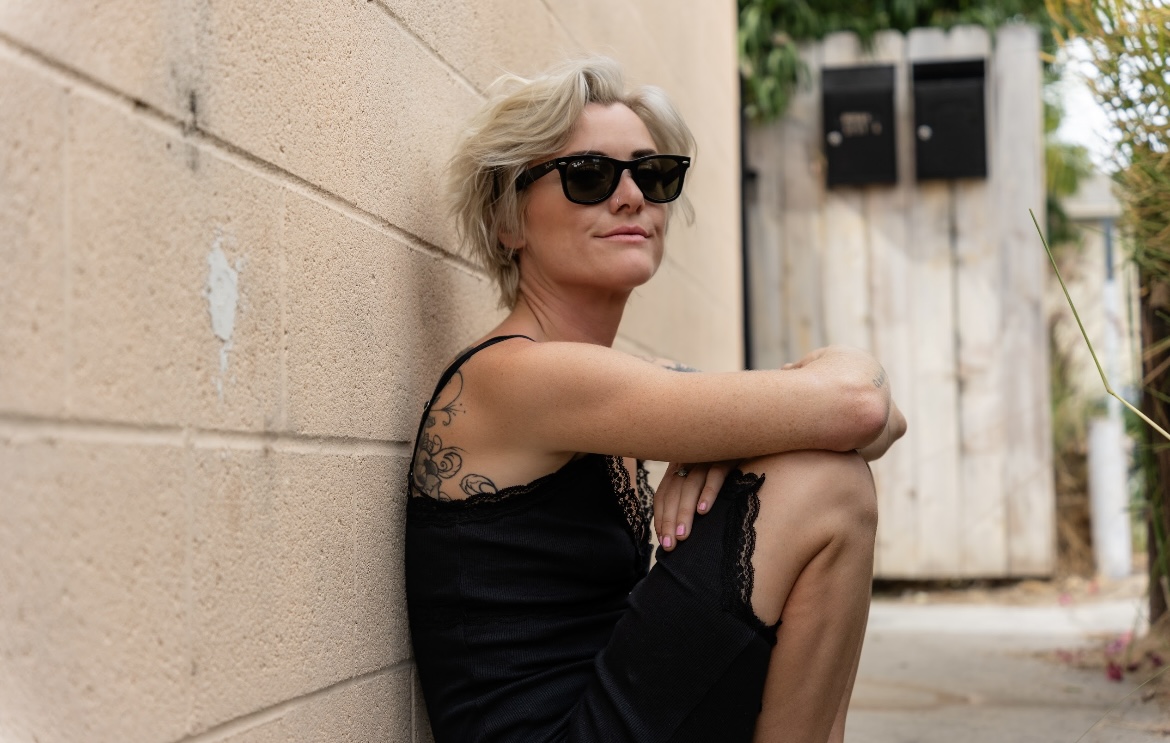
LONG BEACH, Calif. – Emerging from the dynamic music scene of Los Angeles, Juliet Hawkins seamlessly integrates deeply soulful vocals with contemporary production techniques, crafting a distinctive sound that defies conventional categorization.
Drawing inspiration from the emotive depth of Amy Winehouse and weaving together elements of country, blues, and pop, Hawkins’ music can best be described as a fusion–perhaps best termed as soulful electronica. Yet, even this characterization falls short, as Hawkins defines herself as “a blend of a million different inspirations.”
Hawkins’s musical palette mirrors her personae: versatile and eclectic. Any conversation with Hawkins makes this point abundantly clear. She exhibits the archetype of a wild, musical genius while remaining true to her nature-loving, creative spirit. Whether recording in the studio for an album release, performing live in a studio setting, or playing in front of a live audience, Hawkins delivers her music with natural grace.
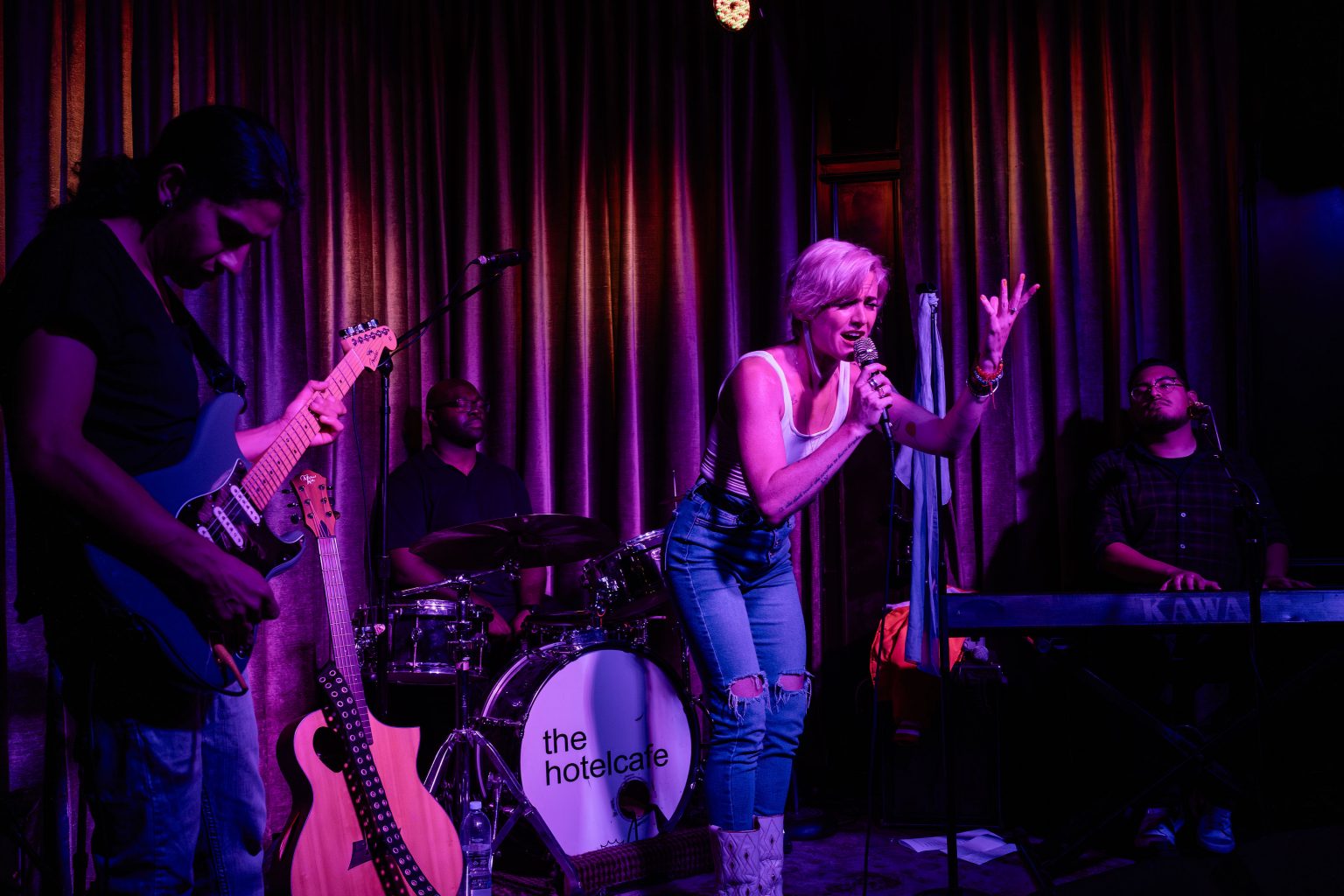
However, Hawkins’s musical journey is far from effortless. Amid personal challenges and adversity, she weaves her personal odyssey of pain and pleasure, transforming these experiences into empowering anthems.
In a candid interview with the Blade, Hawkins spoke with profound openness and vulnerability about her past struggles with opiate and heroin addiction: “That was 10 years ago that I struggled with opiates,” she shared. Yet, instead of letting her previous addiction define her, Hawkins expressed to the Blade that she harbors no shame about her past. “My newer music is much more about empowerment than recovery,” she explained, emphasizing that “writing was the best way to process trauma.”
Despite her struggles with addiction, Hawkins managed to recover. However, she emphasizes that this recovery is deeply intertwined with her spiritual connection to nature. An illustrative instance of Hawkins’ engagement with nature occurred during the COVID pandemic.
Following an impulse that many of us have entertained, she bought a van and chose to live amidst the trees. It was during this period that Hawkins composed the music for her second EP, titled “Lead with Love.”
In many ways, Hawkins deep spiritual connection to nature has been profoundly shaped by her extensive travels. Born in San Diego, spending her formative years in Massachusetts, and later moving to Tennessee before returning to Southern California, she has broadened her interests and exposed herself to the diverse musical landscapes across America.
“Music is the only thing I have left,” Hawkins confides to the Blade, highlighting the integral role that music has in her life. This intimate relationship with music is evident in her sultry and dynamic compositions. Rather than imitating or copying other artists, Hawkins effortlessly integrates sounds from some of her favorite musical influences to create something new. Some of these influences include LP, Lucinda Williams, Lana Del Rey, and, of course, Amy Winehouse, among others.

Hawkins has always been passionate about music—-she began with piano at a young age, progressed to guitar, and then to bass, eagerly exploring any instrument she could get her hands on. However, instead of following a traditional path of formalized lessons and structured music theory, Hawkins told the Blade that she “has a hard time following directions and being told what to do.”
This independent approach has led her to experiment with various genres and even join unexpected groups, such as a tribute band for Eric Clapton and Cream. While she acknowledges that her eclectic musical interests might be attributed to ADHD, she holds a different belief: “Creative minds like to move around.”
When discussing her latest musical release — “Stay True (the live album)” which was recorded in a live studio setting — Hawkins describes the experience as a form of improvisation with both herself and the band:
“[The experience] was this divine honey that was flowing through all of us.” She explains that this live album was uncertain in the music’s direction. “For a couple of songs,” Hawkins recalls, “we intuitively closed them out.” By embracing creative spontaneity and refusing to be constrained by fear of mistakes, the live album authentically captures raw sound, complete with background chatter, extended outros, and an extremely somber cover of Ozzy Osbourne’s “Crazy Train” coupled with a slow piano and accompanied strings.
While “Stay True” was a rewarding experience for Hawkins, her favorite live performance took place in an unexpected location—an unattended piano in the middle of an airport. As she began playing Beethoven’s “Moonlight Sonata”, Hawkins shared with the Blade a universal connection we all share with music: “This little girl was dancing as I was playing.”
After the performance, tears welled in Hawkins’ eyes as she was touched by the young girl’s appreciation of her musicianship. Hawkins tells the Blade, “It’s not about playing to an audience—it’s about finding your people.”
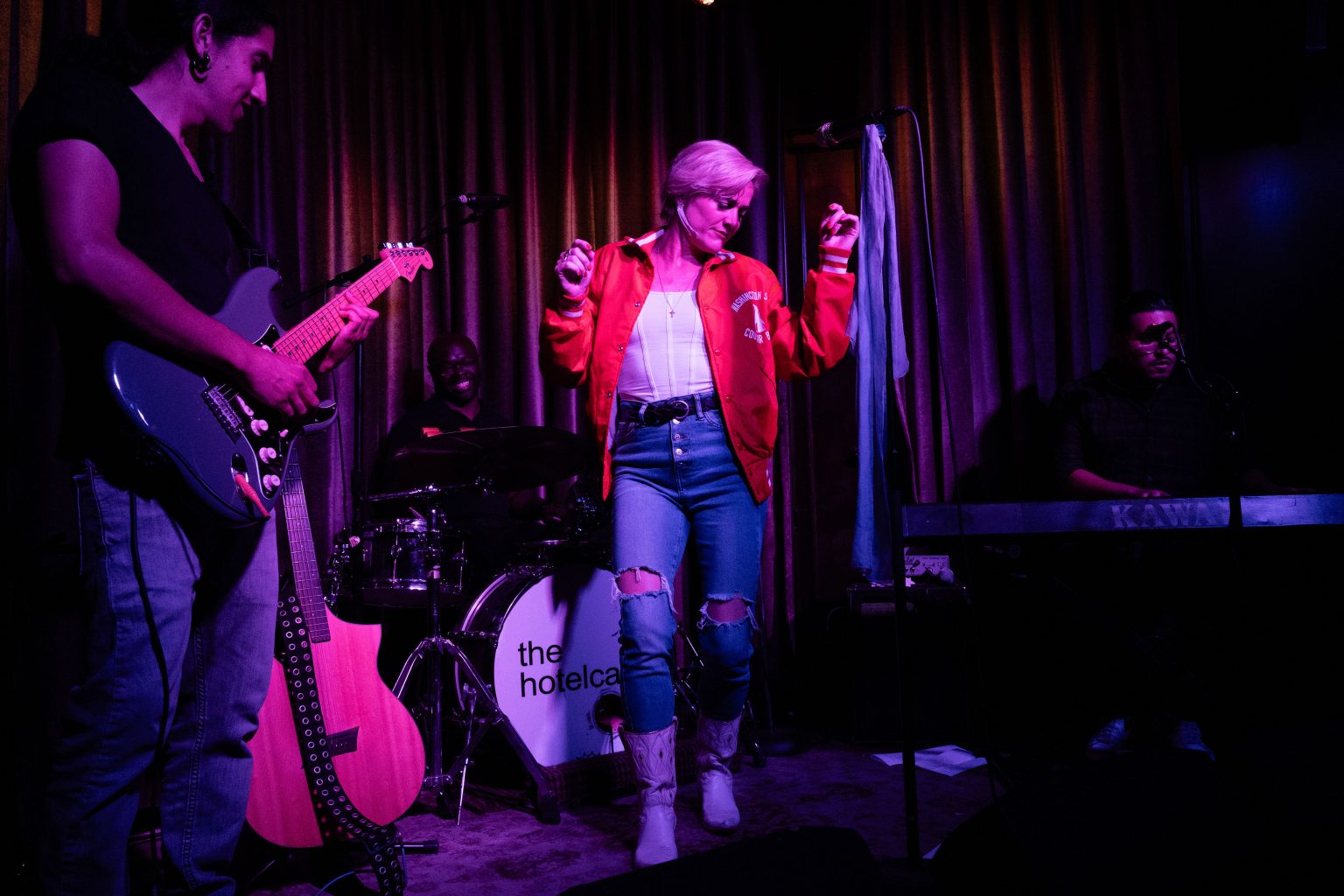
What sets Hawkins apart as an artist is her ability to connect with her audience in diverse settings. She highlights EDC, an electronic dance music festival, as a place where she unabashedly lets her “freak flag” fly and a place to connect with her people. Her affinity for electronic music not only fuels her original pop music creations, but also inspires her to reinterpret songs with an electronic twist. A prime example of this is with her electronic-style cover of Tal Bachman’s 90’s hit, “She’s So High.”
As an openly queer woman in the music industry, Hawkins is on a mission to safeguard artistic integrity. In songs like “My Father’s Men,” she bares her vulnerability and highlights the industry’s misogyny, which often marginalizes gender minorities in their pursuit of artistic expression.
She confides to the Blade, “The industry can be so sexist, misogynist, and oppressive,” and points out that “there are predators in the industry.” Yet, rather than succumbing to apathy, Hawkins is committed to advocating for gender minorities within the music industry.
“Luckily, people are rising up against misogyny, but it’s still there. ‘My Father’s Men’ is a message: It’s time for more people who aren’t just white straight men to have a say.”
Hawkins is also an activist for other causes, with a fervent belief in the preservation of bodily autonomy. Her self-directed music video “I’ll play Daddy,” showcases the joy of embracing one’s body with Hawkins being sensually touched by a plethora of hands. While the song, according to Hawkins, “fell upon deaf ears in the south,” it hasn’t stopped Hawkins from continuing to fight for the causes she believes in. In her interview, Hawkins encapsulated her political stance by quoting an artist she admires:
“To quote Pink, ‘I don’t care about your politics, I care about your kids.’”
When Hawkins isn’t writing music or being a champion for various causes, you might catch her doing the following: camping, rollerblading, painting, teaching music lessons, relaxing with Bernie (her beloved dog), stripping down for artsy photoshoots, or embarking on a quest to find the world’s best hollandaise sauce.
But at the end of the day, Hawkins sums up her main purpose: “To come together with like-minded people and create.”
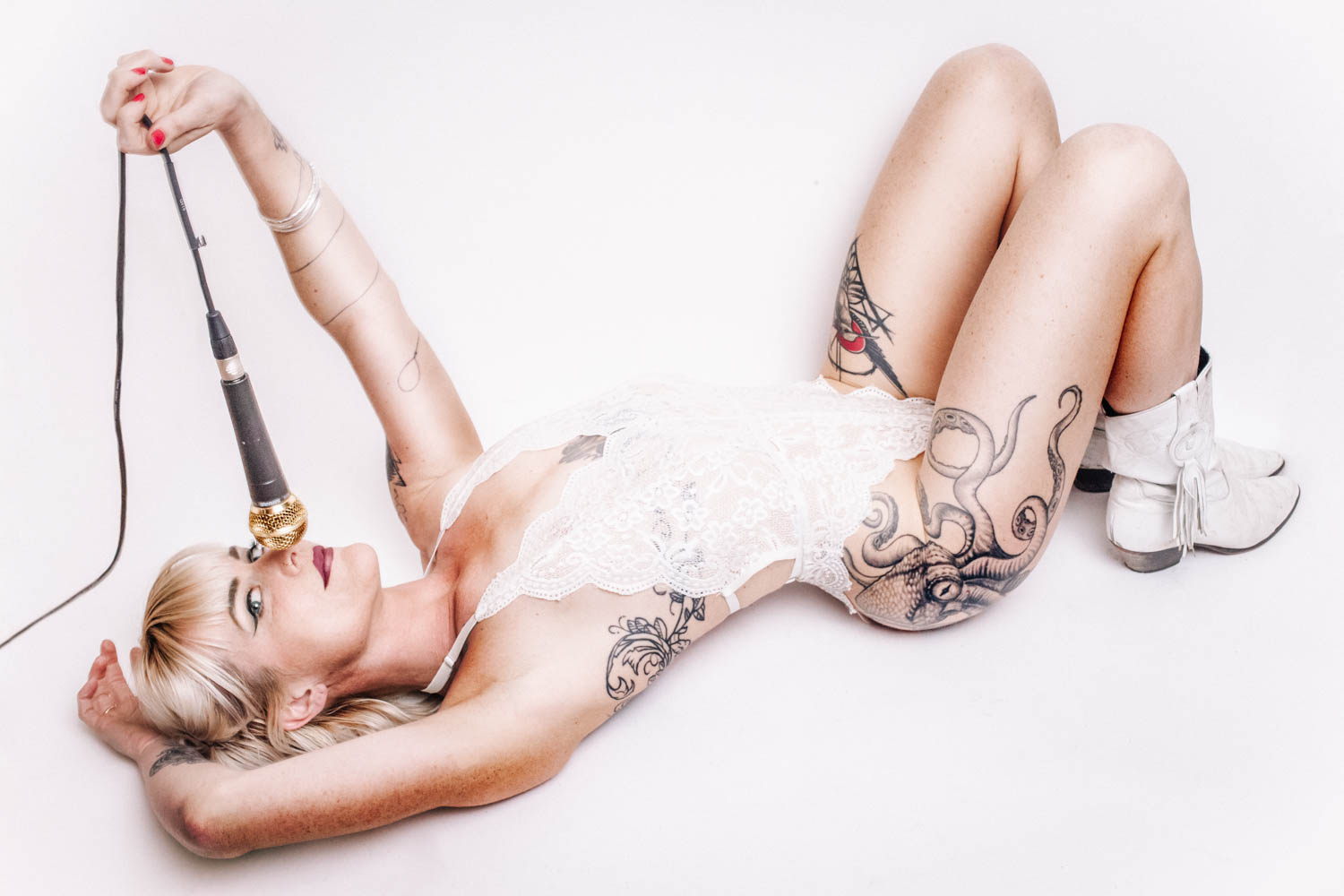
Part of this ever-evolving, coming-of-age-like journey includes an important element: plant-based medicine. Hawkins tells the Blade that she acknowledges her previous experience with addiction and finds certain plants to be useful in her recovery:
“The recovery thing is tricky,” Hawkins explains, “I don’t use opiates—-no powders and no pills—but I am a fan of weed, and I think psilocybin can be helpful when used at the right time.” She emphasizes the role of psychedelics in guiding her towards her purpose. “Thanks for psychedelics, I have a reignited sense of purpose … Music came naturally to me as an outlet to heal.”
While she views the occasional dabbling of psychedelics as a spiritual practice, Hawkins also embraces other rituals, particularly those she performs before and during live shows. “I always carry two rocks with me: a labradorite and a tiger’s eye marble,” she explains.
a&e features
Lavender Mass and the art of serious parody in protest
Part 3 of our series on the history of LGBTQ religion in D.C.
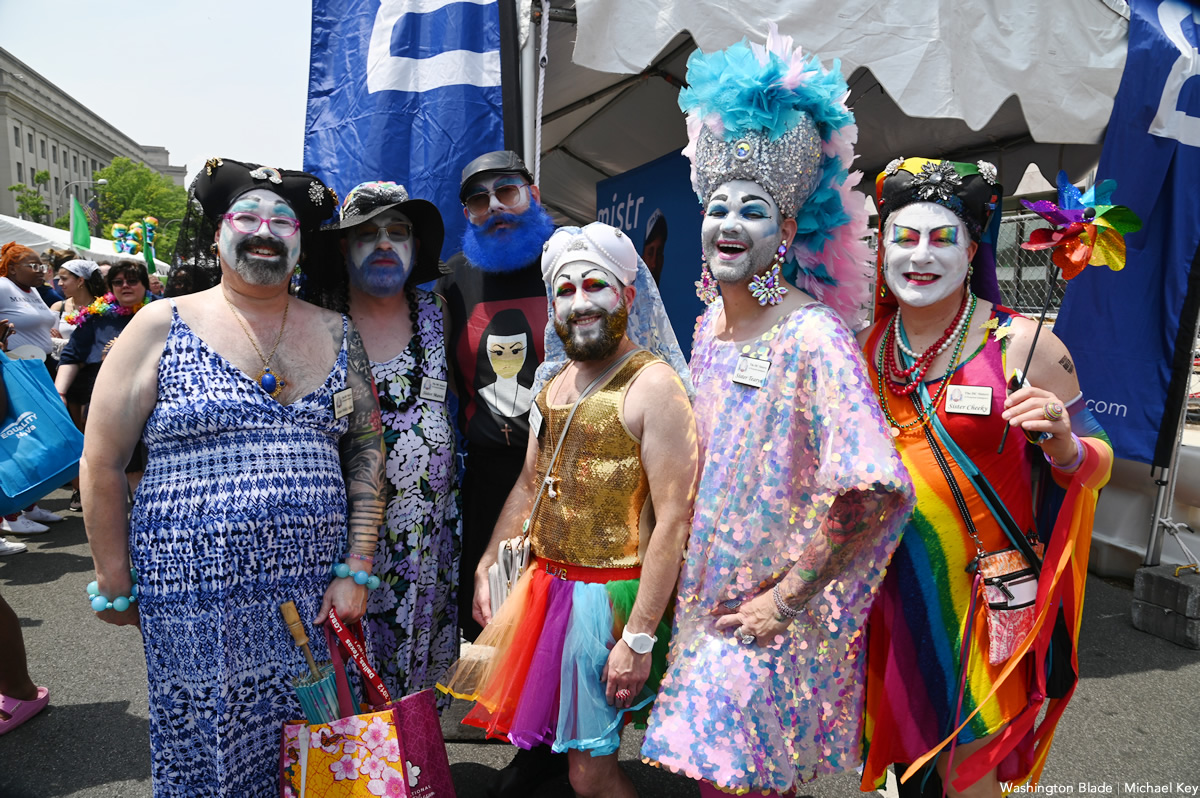
(Editor’s note: Although there has been considerable scholarship focused on LGBTQ community and advocacy in D.C., there is a deficit of scholarship focused on LGBTQ religion in the area. Religion plays an important role in LGBTQ advocacy movements, through queer-affirming ministers and communities, along with queer-phobic churches in the city. This is the final installment of a three-part series exploring the history of religion and LGBTQ advocacy in Washington, D.C. Visit our website for the previous installments.)
Six sisters gathered not so quietly in Marion Park, Washington, D.C. on Saturday, October 8, 2022. As the first sounds of the Women’s March rang out two blocks away at 11 am, the Sisters passed out candles to say Mass on the grass. It was their fifth annual Lavender Mass, but this year’s event in particular told an interesting story of religious reclamation, reimagining a meaningful ritual from an institution that seeks to devalue and oppress queer people.
The D.C. Sisters are a chapter of the Sisters of Perpetual Indulgence, an organization of “drag nuns” ministering to LGBTQ+ and other marginalized communities. What first began as satire on Easter Sunday 1979 when queer men borrowed and wore habits from a production of The Sound of Music became a national organization; the D.C. chapter came about relatively late, receiving approval from the United Nuns Privy Council in April 2016. The D.C. Sisters raise money and contribute to organizations focused on underserved communities in their area, such as Moveable Feast and Trans Lifeline, much like Anglican and Catholic women religious orders.
As Sister Ray Dee O’Active explained, “we tend to say we raise funds, fun, and hell. I love all three. Thousands of dollars for local LGBTQ groups. Pure joy at Pride parades when we greet the next generation of activists. And blatant response to homophobia and transphobia by protest after protest.” The Lavender Mass held on October 8th embodied their response to transphobia both inside and outside pro-choice groups, specifically how the overturn of Roe v. Wade in June 2022 intimately affects members of the LGBTQ+ community.
As a little history about the Mass, Sister Mary Full O’Rage, shown wearing a short red dress and crimson coronet and veil in the photo above developed the Lavender Mass as a “counterpart” or “counter narrative” to the Red Mass, a Catholic Mass held the first Sunday of October in honor Catholics in positions of civil authority, like the Supreme Court Justices. The plan was to celebrate this year’s Lavender Mas on October 1st at the Nuns of the Battlefield Memorial, located right across the street from the Cathedral of St. Matthew the Apostle, where many Supreme Court Justices attend the Red Mass every year.
As Sister Mary explained, this year “it was intended to be a direct protest of the actions of the Supreme Court, in significant measure their overturning of reproductive rights.”
Unfortunately, the October 1st event was canceled due to heavy rain and postponed to October 8th at the recommendation of Sister Ruth Lisque-Hunt and Sister Joy! Totheworld. The focus of the Women’s March this year aligned with the focus of the Lavender Mass—reproductive rights—and this cause, Sister Mary explained, “drove us to plan our Lavender Mass as a true counter-ritual and protest of the Supreme Court of who we expected to attend the Red Mass,” and who were protested in large at the Women’s March.
The “Lavender Mass was something that we could adopt for ourselves,” Sister Mary spoke about past events. The first two Masses took place at the Lutheran Church of the Reformation, right around the corner from the Supreme Court. The second Mass, as Sister Mary explained, celebrated Justice Ruth Bader Ginsburg; “we canonized her.” Canonization of saints in the Catholic Church also takes place during a Mass, a Papal Mass in particular.
During the COVID-19 pandemic, the Sisters moved the Mass outside for safety, and the third and fourth Masses were celebrated at the Nuns of the Battlefield Memorial. “It celebrates nuns, and we are nuns, psycho-clown nuns,” Sister Mary chuckled, “but we are nuns.” After the Mass, the Sisters would gather at a LGBTQ+ safe space or protest at the Catholic Church or Supreme Court. Although they often serve as “sister security” at local events, working to keep queer community members safe according to Sister Amore Fagellare, the Lavender Mass is not widely publicly advertised, out of concern for their own.
On October 8th, nine people gathered on the grass in a circle—six sisters, myself, and two people who were close with professed members—as Sister Mary called us to assemble before leading us all in chanting the chorus to Sister Sledge’s 1979 classic song “We Are Family.”
Next, novice Sister Sybil Liberties set a sacred space, whereby Sister Ruth and Sister Tearyn Upinjustice walked in a circle behind us, unspooling pink and blue ribbons to tie us together as a group. As Sister Sybil explained, “we surround this sacred space in protection and sanctify it with color,” pink for the choice to become a parent and blue for the freedom to choose not to be a parent but also as Sybil elaboration, in recognition of “the broad gender spectrum of people with the ability to become pregnant.” This intentional act was sought to fight transphobia within the fight for reproductive rights.
After singing Lesley Gore’s 1963 song “You Don’t Own Me,” six speakers began the ritual for reproductive rights. Holding out our wax plastic candles, Sister Sybil explained that each speaker would describe a story or reality connected to reproductive rights, and “as I light a series of candles for the different paths we have taken, if you recognize yourself in one of these prayers, I invite you to put your hand over your heart, wherever you are, and know that you are not alone – there is someone else in this gathered community holding their hand over their heart too.”
The Sisters went around the circle lighting a candle for those whose stories include the choice to end a pregnancy; those whose include the unwanted loss of a pregnancy or struggles with fertility; those whose include the choice to give birth, raise or adopt a child; those whose include the choice not to conceive a child, to undergo forced choice, or with no choice at all; those who have encountered violence where there “should have been tenderness and care;” and those whose reproductive stories are still being written today.
After each reading, the group spoke together, “may the beginnings and endings in our stories be held in unconditional love and acceptance,” recalling the Prayer of the Faithful or General Intercessions at Catholic Masswhere congregations respond “Lord, hear our prayer” to each petition. Sister Sybil closed out the ritual as Sister Mary cut the blue and pink ribbons between each person, creating small segments they could take away with them and tie to their garments before walking to the Women’s March. The Sisters gathered their signs, drums, and horns before walking to Folger Park together into the crowd of protestors.
At first glance, the Lavender Mass may appear like religious appropriation, just as the Sisters themselves sometimes look to outsiders. They model themselves after Angelican and Catholic women religious, in dress—they actively refer to their clothing as “habits,” their organization—members must also go through aspirant, postulant, and novice stages to be fully professed and they maintain a hierarchical authority, and in action. Like white and black habits, the Sisters all wear white faces to create a unified image and colorful coronets, varying veil color based on professed stage. Sister Allie Lewya explained at their September 2022 meeting, “something about the veils gives us a lot of authority that is undue,” but as the Sisters reinforced at the Women’s March, they are not cosplayers nor customers, rather committed clergy.
As such, the Sisters see their existence within the liminal spaces between satire, appropriation, and reimagination, instead reclaiming the basis of religious rituals to counter the power holders of this tradition, namely, to counter the Catholic Church and how it celebrates those in positions of authority who restrict reproductive rights. Similarly, the Lavender Mass is modeled after a Catholic or Anglican Mass. It has an intention, namely reproductive rights, a call to assemble, setting of a sacred space, song, chant, and prayer requests. It even uses religious terminology; each section of the Mass is ended with a “may it be/Amen/Awen/Ashay/aho.”
While this ritual—the Lavender Mass—appropriates a religious ritual of the Catholic Church and Anglican Church, this religious appropriation is necessitated by exclusion and queerphobia. As David Ford explains in Queer Psychology, many queer individuals retain a strong connection to their faith communities even though they have experienced trauma from these same communities. Jodi O’Brien builds on this, characterizing Christian religious institutions as spaces of personal meaning making and oppression. This essay further argues that the fact this ritual is adopted and reimagined by a community that the dominant ritual holder—the Catholic Church—oppressed and marginalized, means that it is not religious appropriation at all.
Religious appropriation, as highlighted in Liz Bucar’s recent book, Stealing My Religion (2022), is the acquisition or use of religious traditions, rituals, or objects without a full understanding of the community for which they hold meaning. The Sisters, however, fully understand the implications of calling themselves sisters and the connotations of performing a ritual they call a “Mass” as women religious, a group that do not have this authority in the Catholic Church. It is the reclamation of a tradition that the Sisters of Perpetual Indulgence understand because some were or are part of the Catholic Church.
Some sisters still seek out spiritual meaning, but all also recognize that the Catholic Church itself is an institution that hinders their sisters’ access and actively spreads homophobia and transphobia to this day. As such, through the Lavender Mass, the sisters have reclaimed the Mass as a tool of rebellion in support of queer identity.
Just as the Sisters recognize the meaning and power of the ritual of a Mass, along with the connotations of being a sister, the Lavender Mass fulfilled its purpose as a ritual of intention just as the Sisters fulfill public servants. “As a sister,” Sister Ruth dissected, “as someone who identifies as a drag nun, it perplexes people, but when you get the nitty gritty, we serve a similar purpose, to heal a community, to provide support to a community, to love a community that has not been loved historically in the ways that it should be loved.
The Sisters’ intentionality in recognizing and upholding the role of a woman religious in their work has been well documented as a serious parody for the intention of queer activism by Melissa Wilcox. The Lavender Mass is a form of serious parody, as Wilcox posits in the book: Queer Nuns: Religion, Activism, and Serious Parody(2018). The Mass both challenges the queerphobia of the Catholic Church while also reinforcing the legitimacy of this ritual as a Mass. The Sisters argue that although they would traditionally be excluded from religious leadership in the Catholic Church, they can perform a Mass. In doing so, they challenge the role that women religious play in the Catholic Church as a whole and the power dynamics that exclude queer communities from living authentically within the Church.
By reclaiming a tradition from a religious institution that actively excludes and traumatizes the LGBTQ+ community, the Lavender Mass is a form of religious reclamation in which an oppressed community cultivates queer religious meaning, reclaims a tradition from which they are excluded, and uses it to fuel queer activism (the fight for reproductive rights). This essay argues that the Lavender Mass goes one step further than serious parody. While the Sisters employ serious parody in their religious and activist roles, the Lavender Mass is the active reclamation of a religious tradition for both spiritual and activist ends.
Using the celebration of the Mass as it was intended, just within a different lens for a different purpose, this essay argues, is religious reclamation. As a collection of Austrian and Aotearoan scholars explored most recently in a chapter on acculturation and decolonization, reclamation is associated with the reassertion and ownership of tangibles: of rituals, traditions, objects, and land. The meaning of the Lavender Mass comes not only from the Sisters’ understanding of women religious as a social and religious role but rather from the reclamation of a physical ritual—a Mass—that has specific religious or spiritual meaning for the Sisters.
When asked why it was important to call this ritual a “Mass,” Sister Mary explained: “I think we wanted to have something that denoted a ritual, that was for those who know, that the name signifies that it was a counter-protest. And you know, many of the sisters grew up with faith, not all of them Catholics but some, so I think ‘Mass’ was a name that resonated for many of us.”
As Sister Ray said, “my faith as a queer person tends to ostracize me but the Sisters bring the imagery and language of faith right into the middle of the LGBTQ world.” This Lavender Mass, although only attended and experienced by a few of the Women’s March protests, lived up to its goal as “a form of protest that is hopefully very loud,” as Sister Millie Taint advertised in the Sisters’ September 2022 chapter meeting. It brought religious imagery and language of faith to a march for reproductive rights, using a recognized model of ritual to empower protestors.
The Lavender Mass this year, as always, was an act of rebellion, but by situating itself before the Women’s March and focusing its intention for reproductive rights, the Sisters’ reclaimed a religious ritual from a system of authority which actively oppressed LGBTQ+ peoples and those with the ability to become pregnant, namely the Catholic Church, and for harnessing it for personal, political, and spiritual power. In essence, it modelled a system of religious reclamation, by which a marginalized community takes up a religious ritual to make its own meaning and oppose the religious institution that seeks to exclude the community from ritual participation.
Emma Cieslik will be presenting on LGBTQ+ Religion in the Capital at the DC History Conference on Friday, April 6th. She is working with a DC History Fellow to establish a roundtable committed to recording and preserving this vital history. If you have any information about these histories, please reach out to Emma Cieslik at [email protected] or the Rainbow History Project at [email protected].
-

 Africa4 days ago
Africa4 days agoCongolese lawmaker introduces anti-homosexuality bill
-

 District of Columbia20 hours ago
District of Columbia20 hours agoReenactment of first gay rights picket at White House draws interest of tourists
-

 World4 days ago
World4 days agoOut in the World: LGBTQ news from Europe and Asia
-

 Arizona1 day ago
Arizona1 day agoAriz. governor vetoes anti-transgender, Ten Commandments bill



